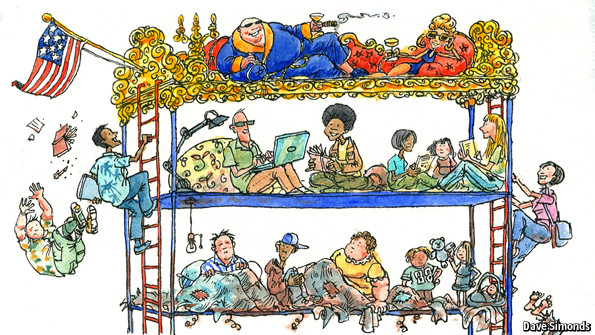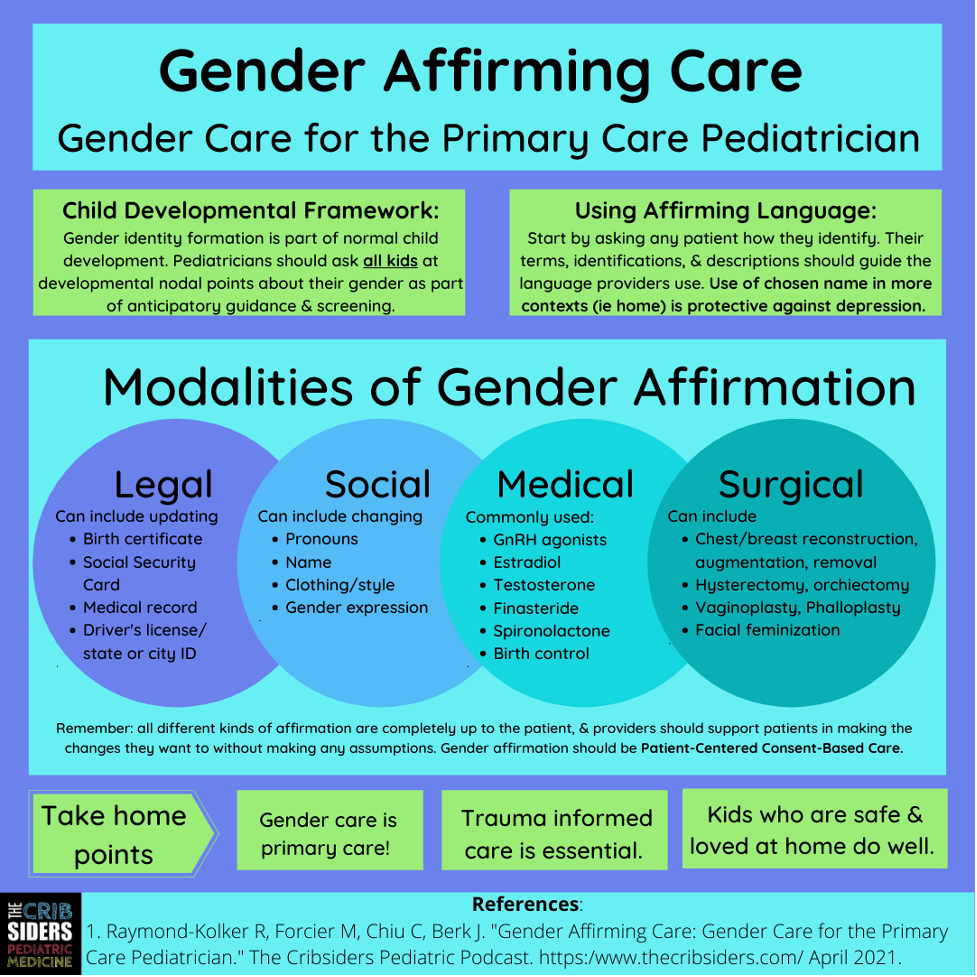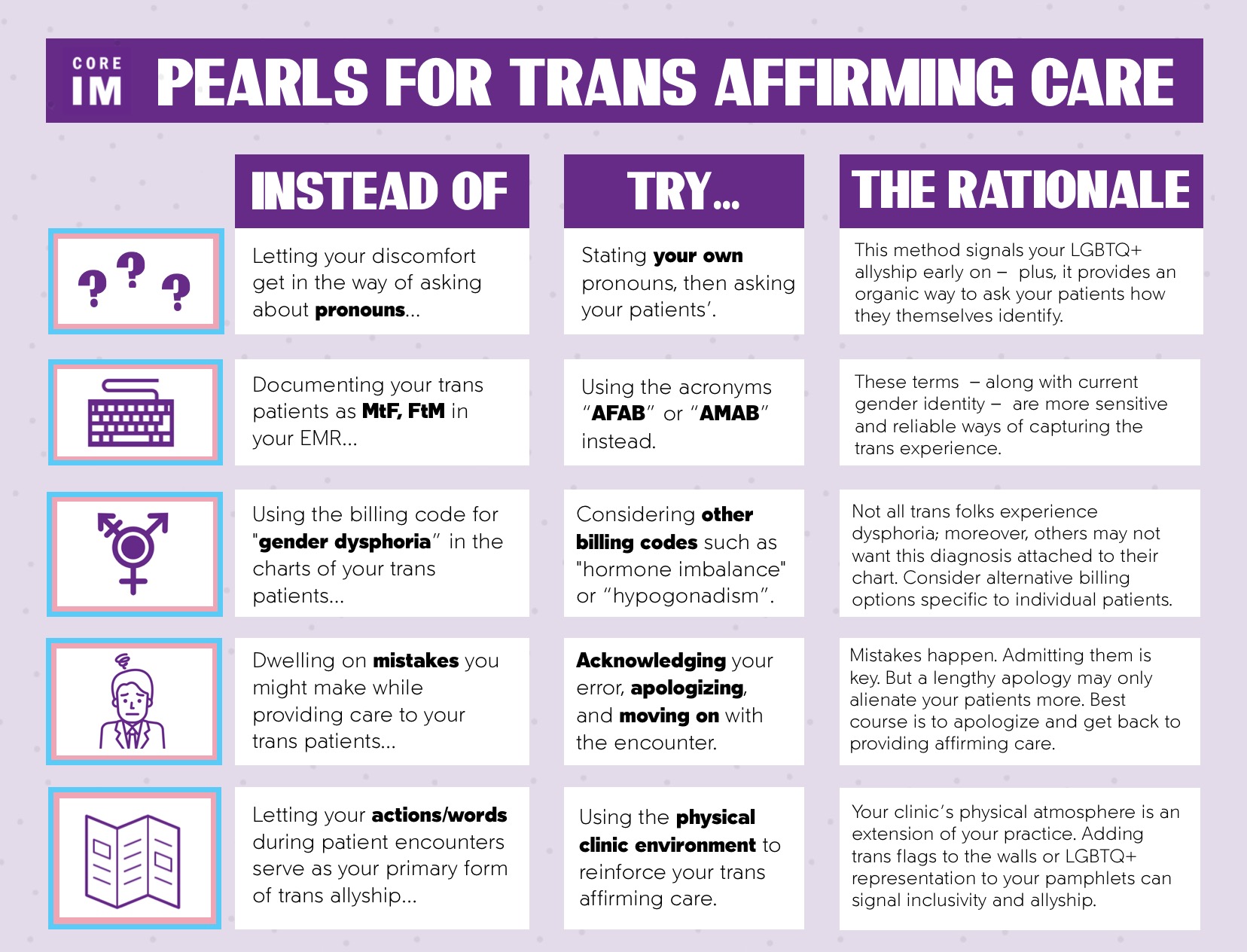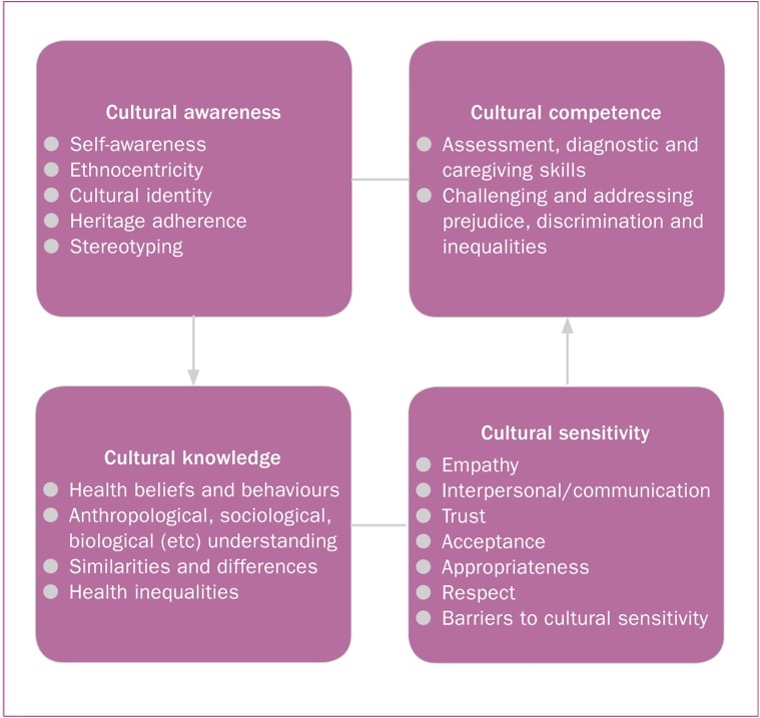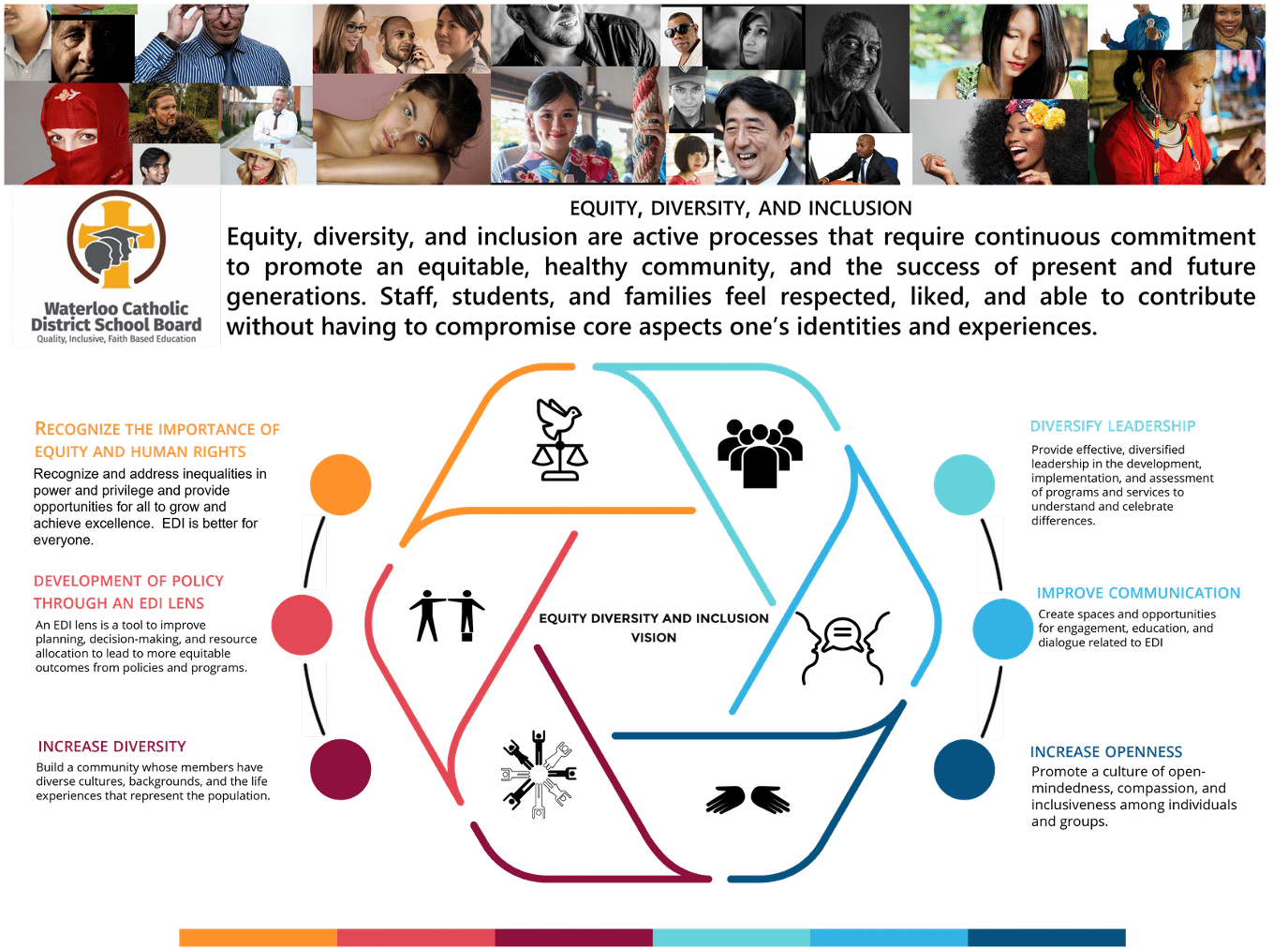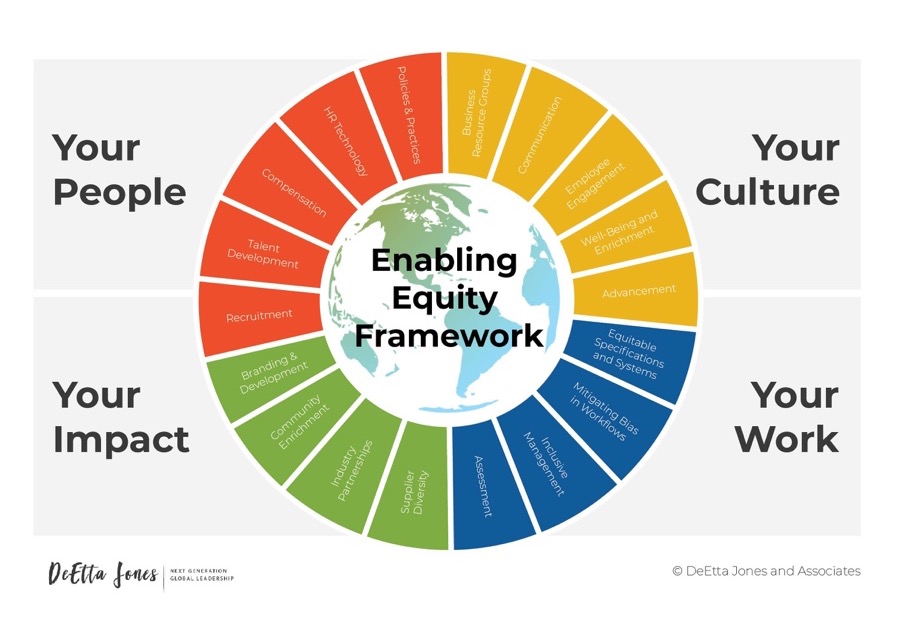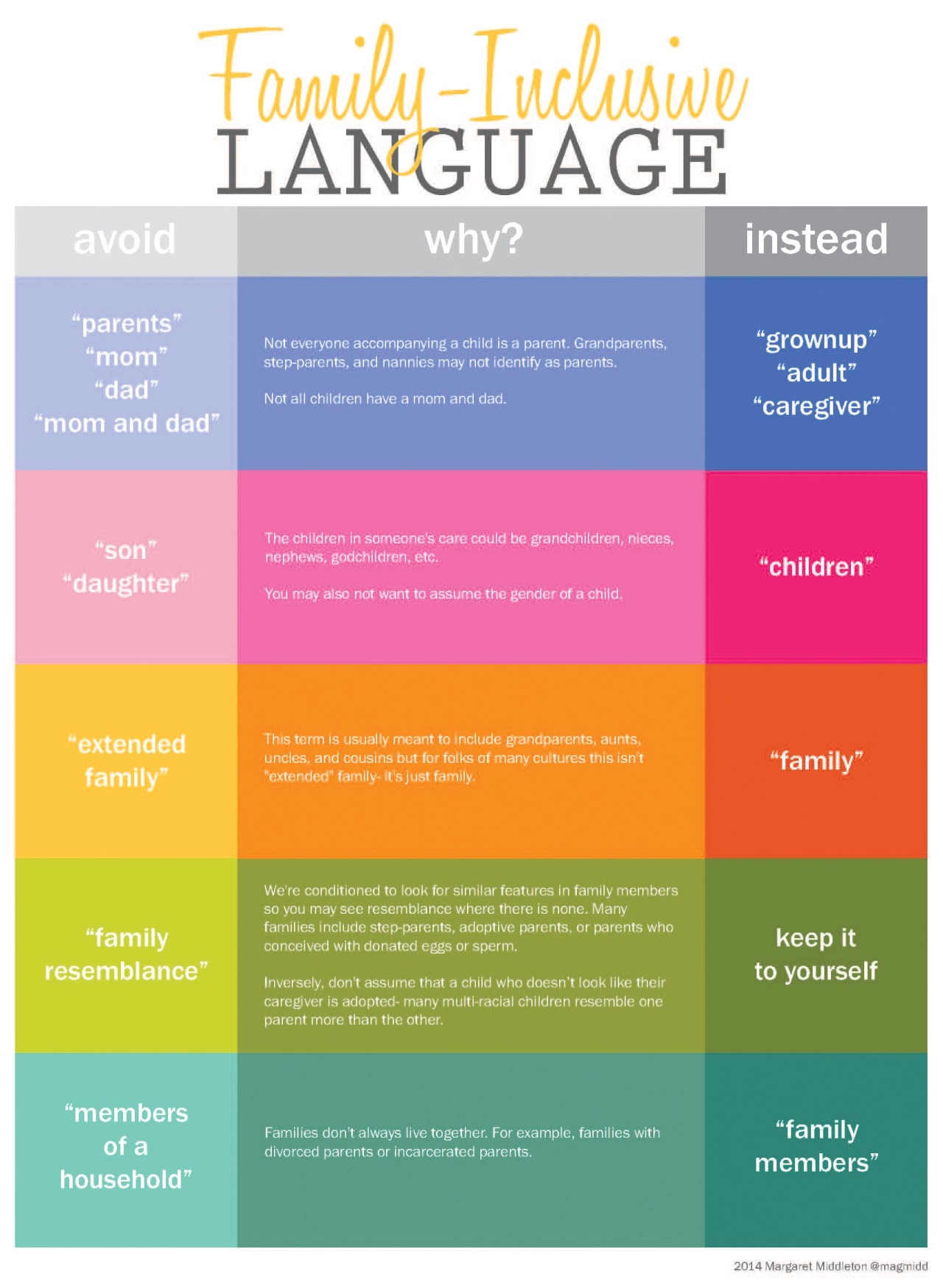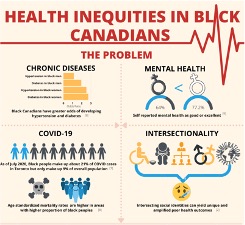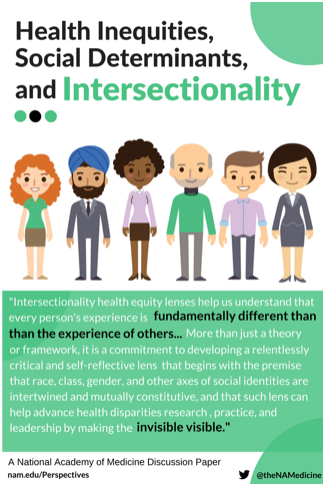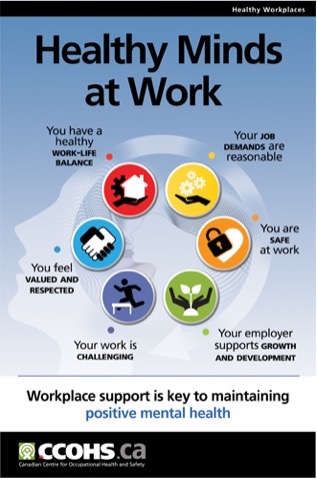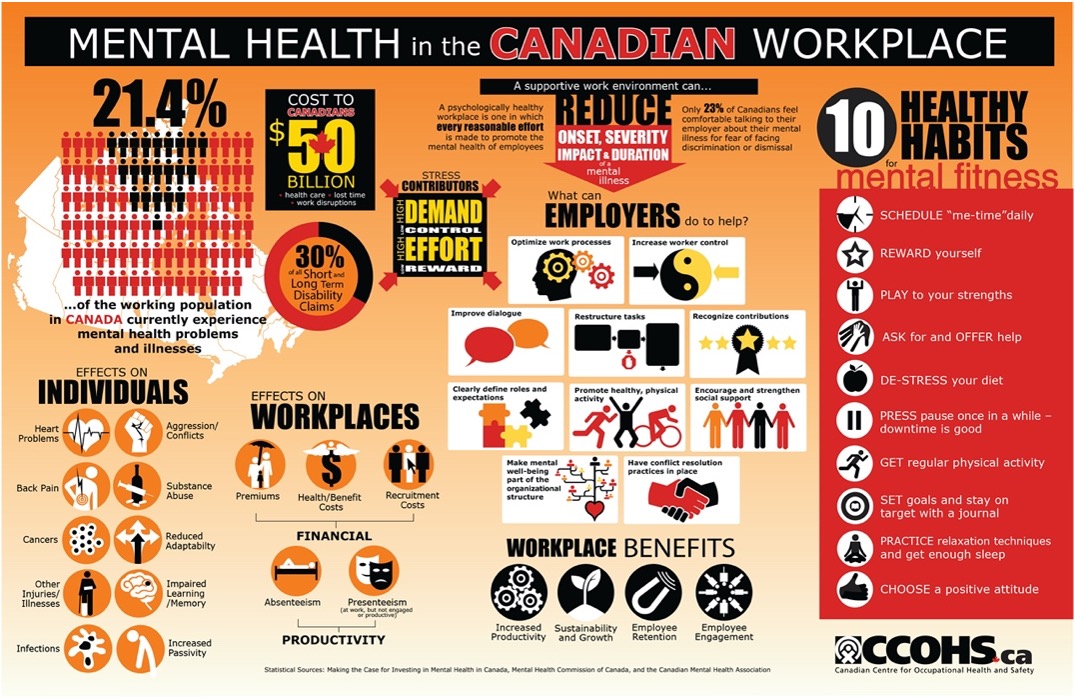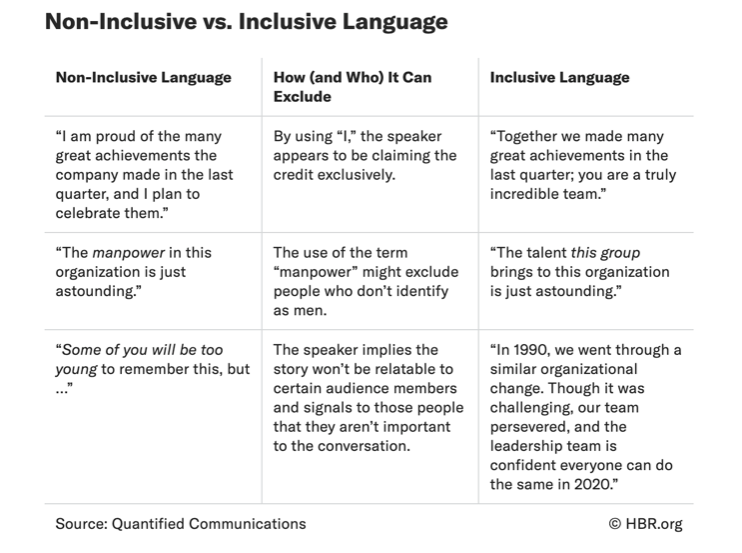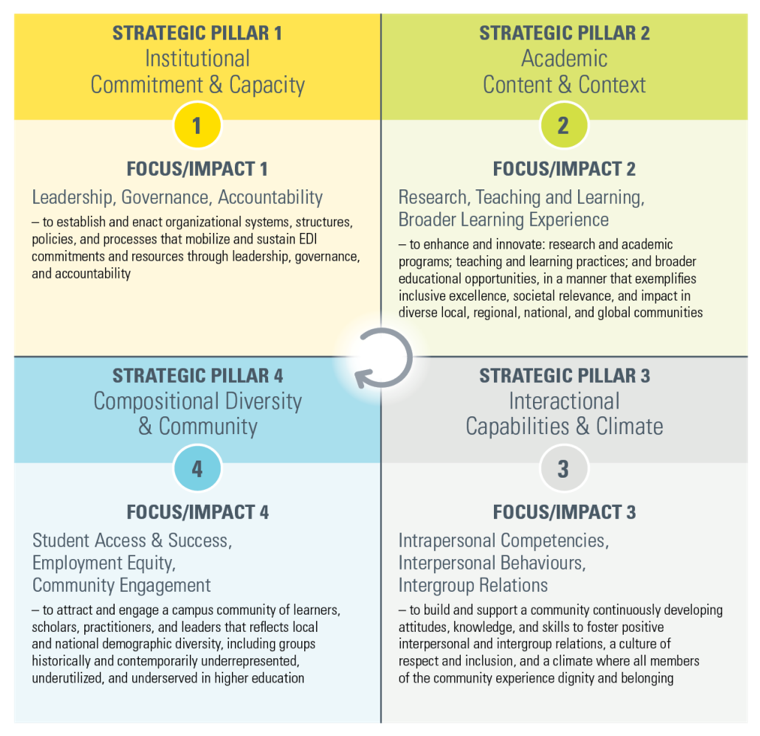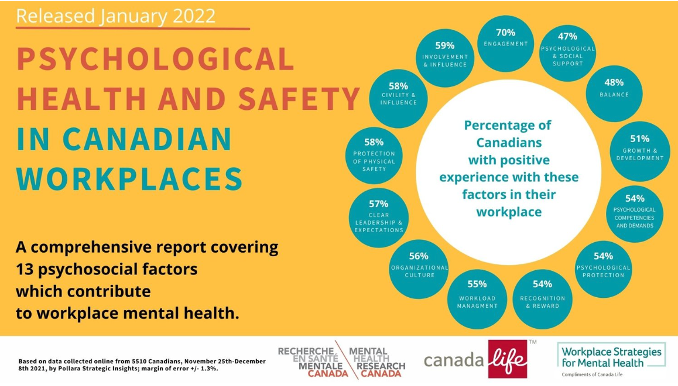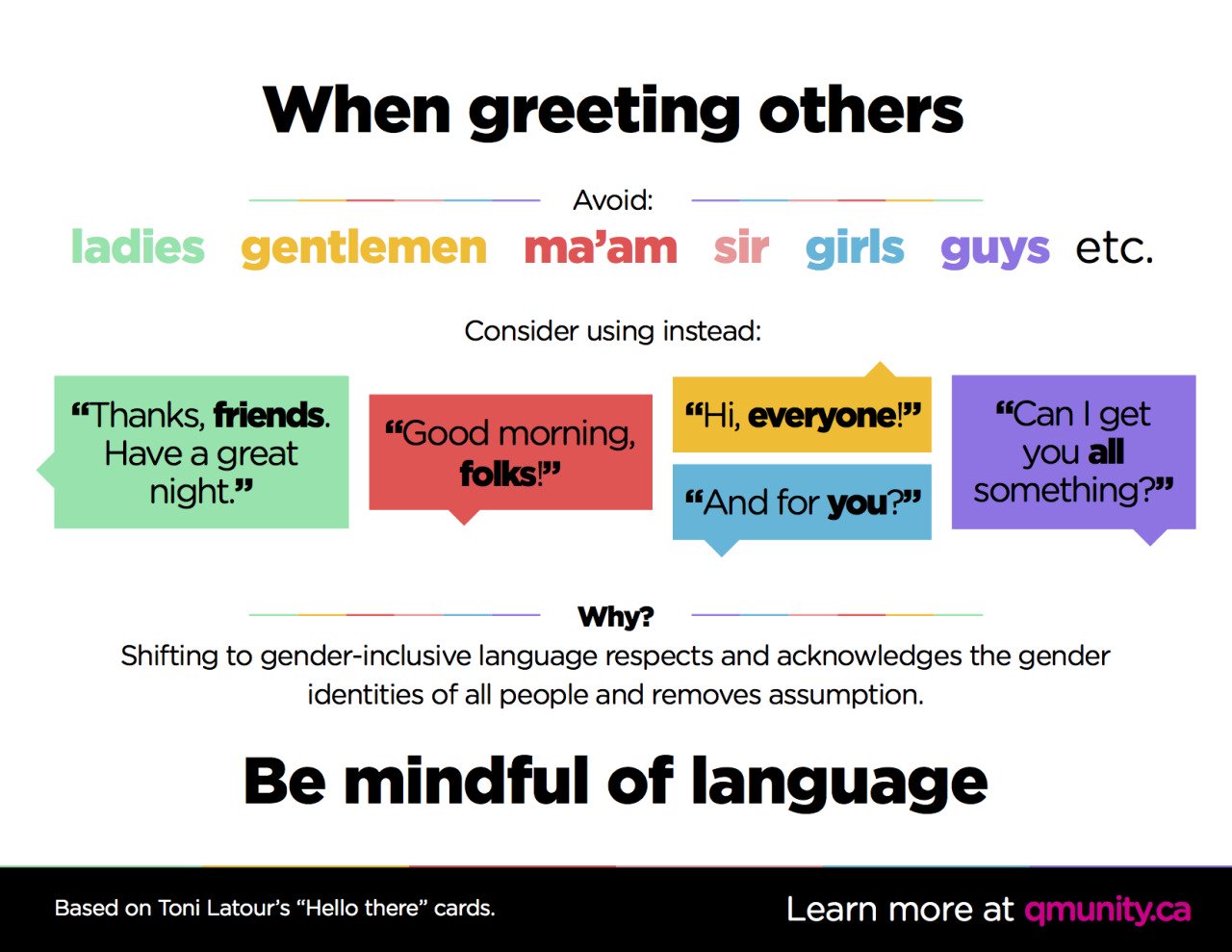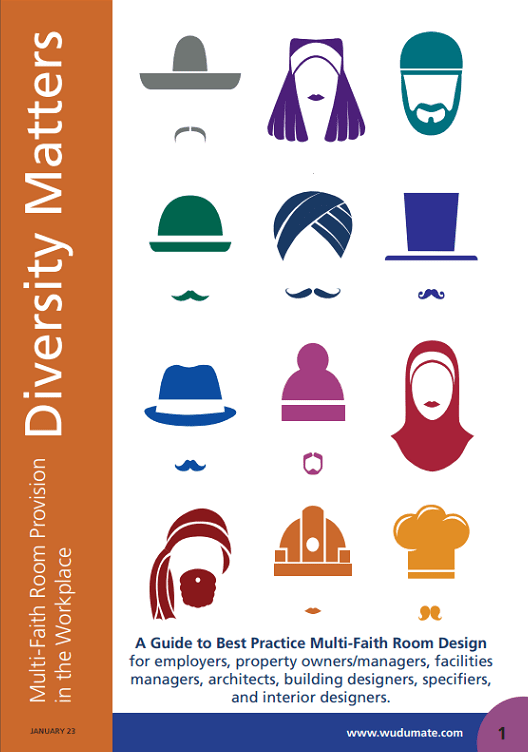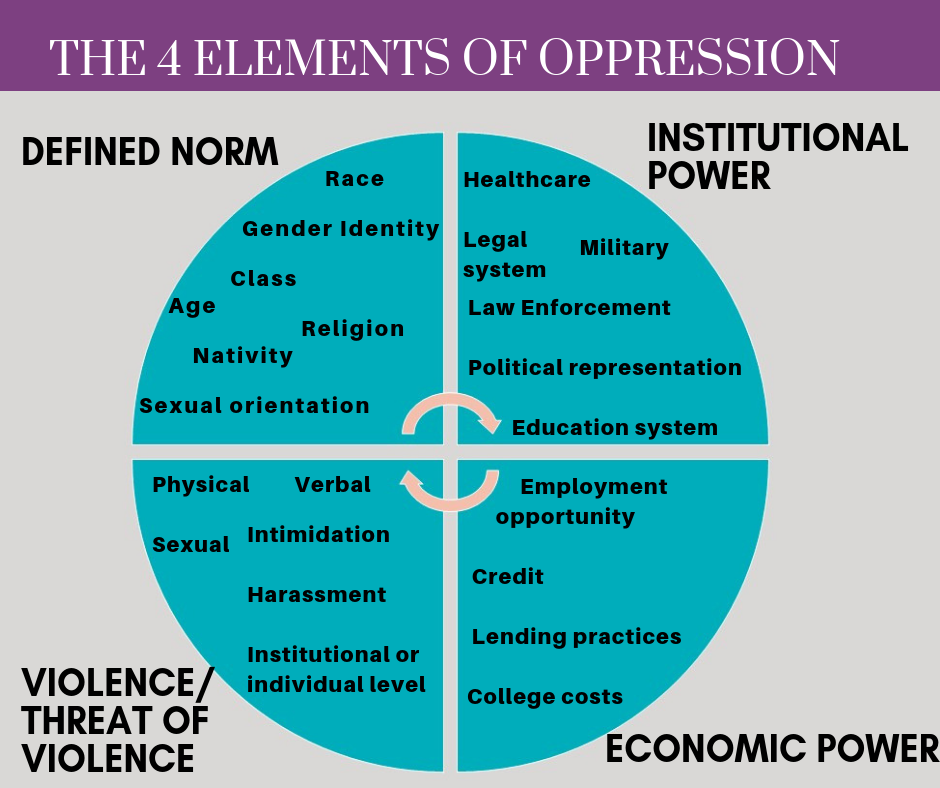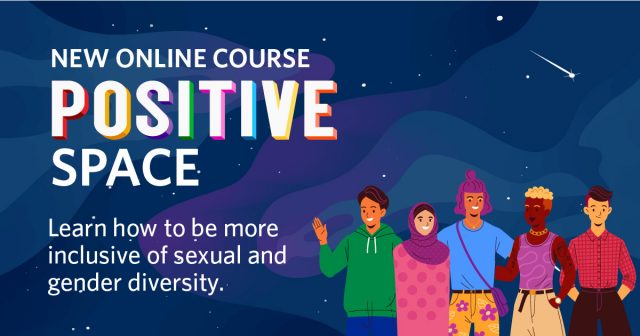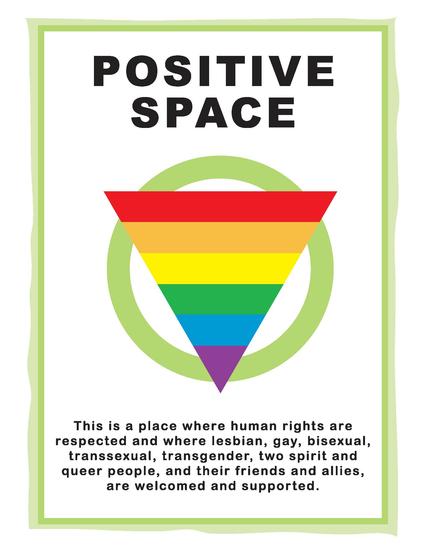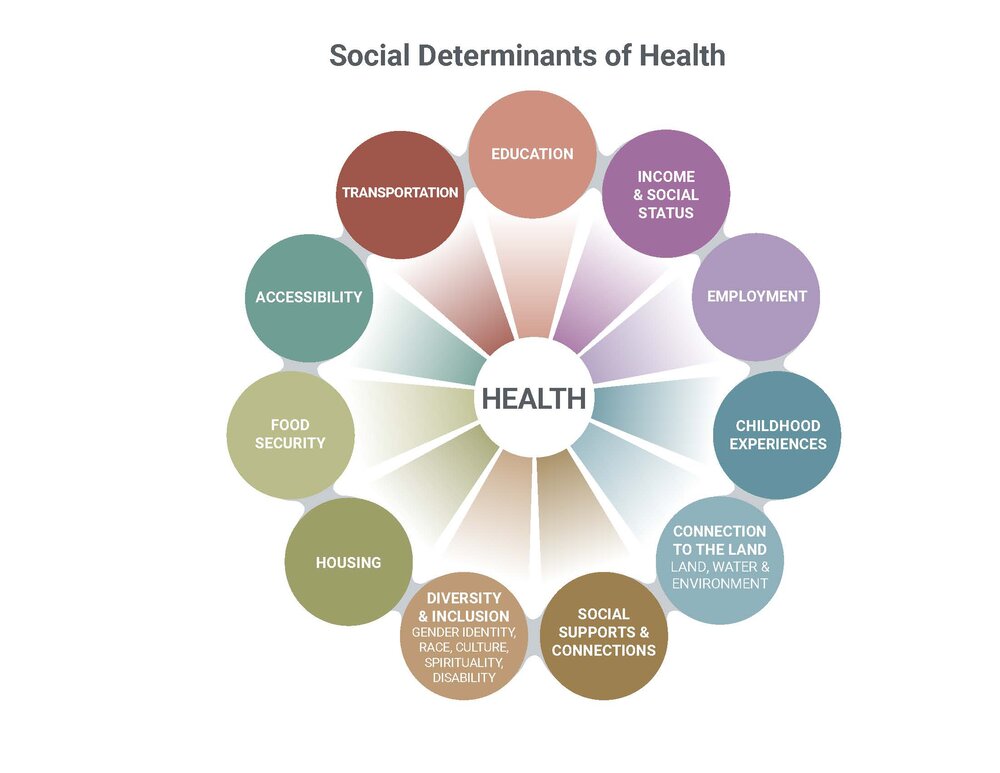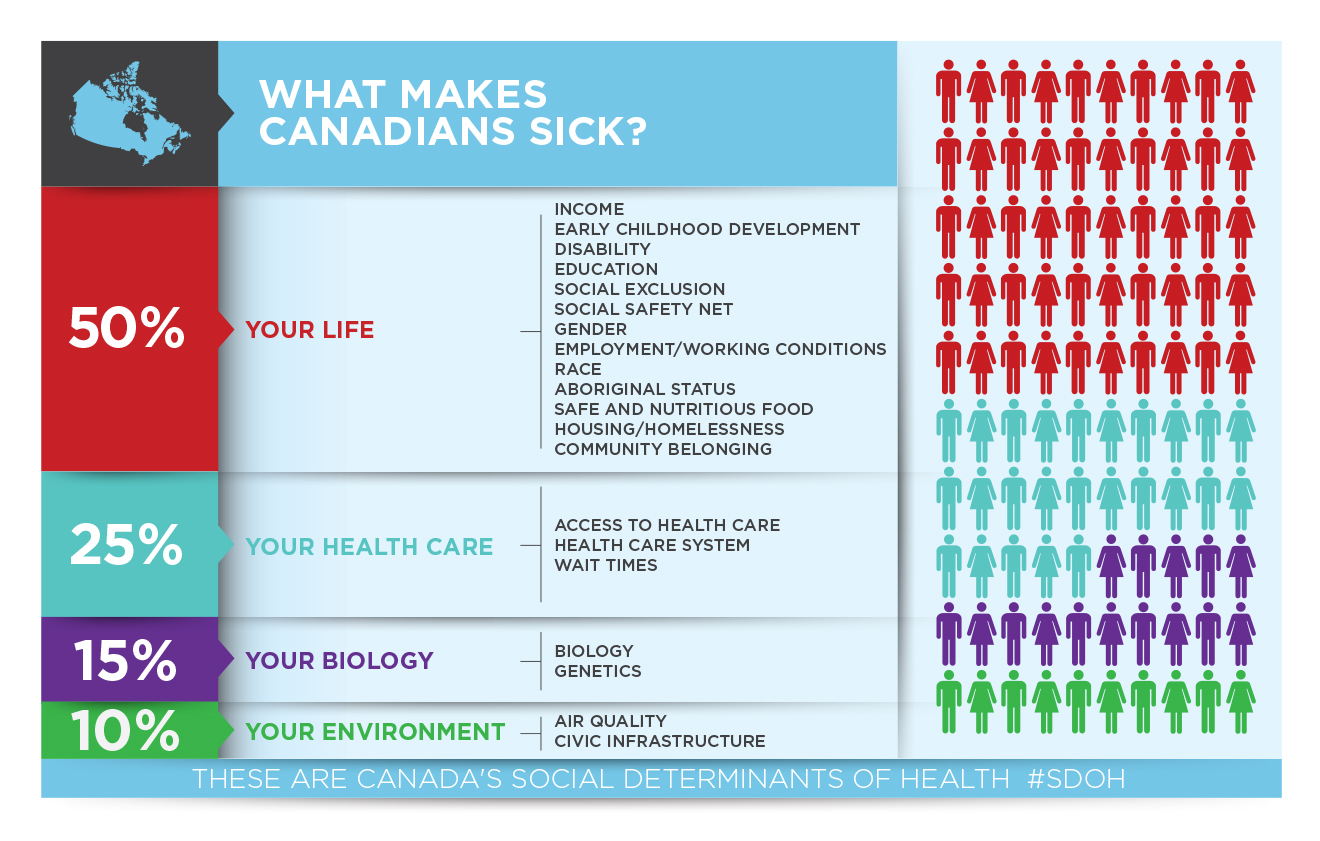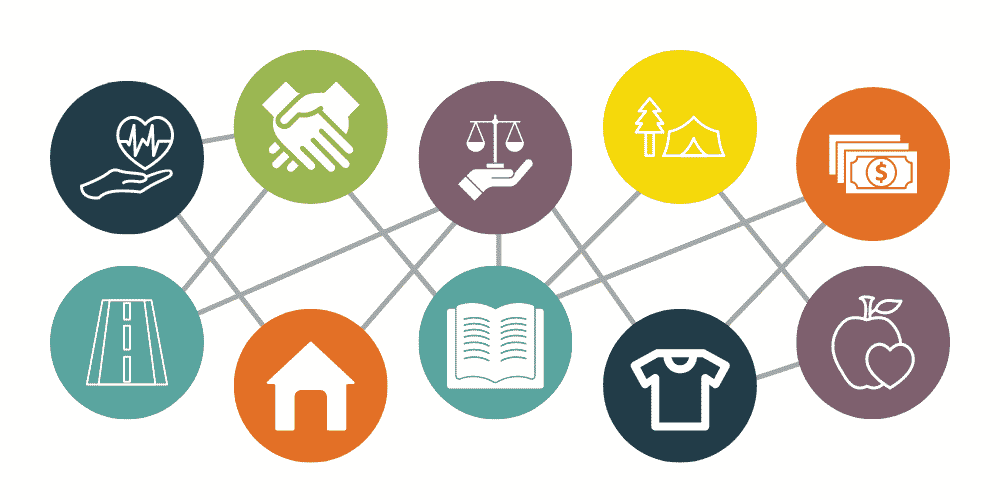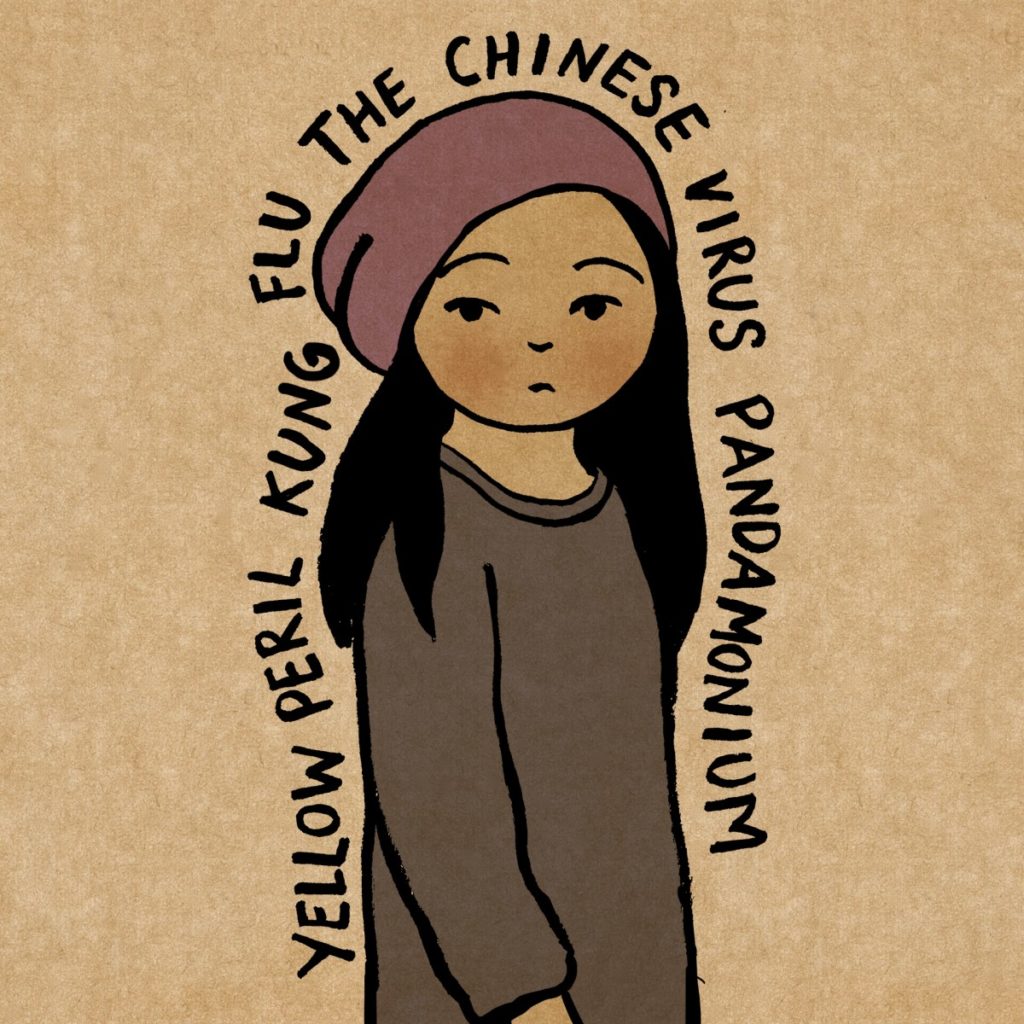Resource Listing
WEBSITE
“As an underrepresented minority student, my community’s support can feel like pressure”
""What is the biggest challenge of graduate school?" an undergrad asked the panel of graduate students at an event I helped organize last summer. "Not letting the support from my community turn into pressure," one panelist responded. That answer might have surprised some, who probably expected to hear about experiments that didn't work or trudging through literature reviews. But I understood exactly what she meant."


POP-UP
“How to Understand Power”: A Video
Eric Liu describes the six sources of power and explains how understanding them is key to being an effective citizen.

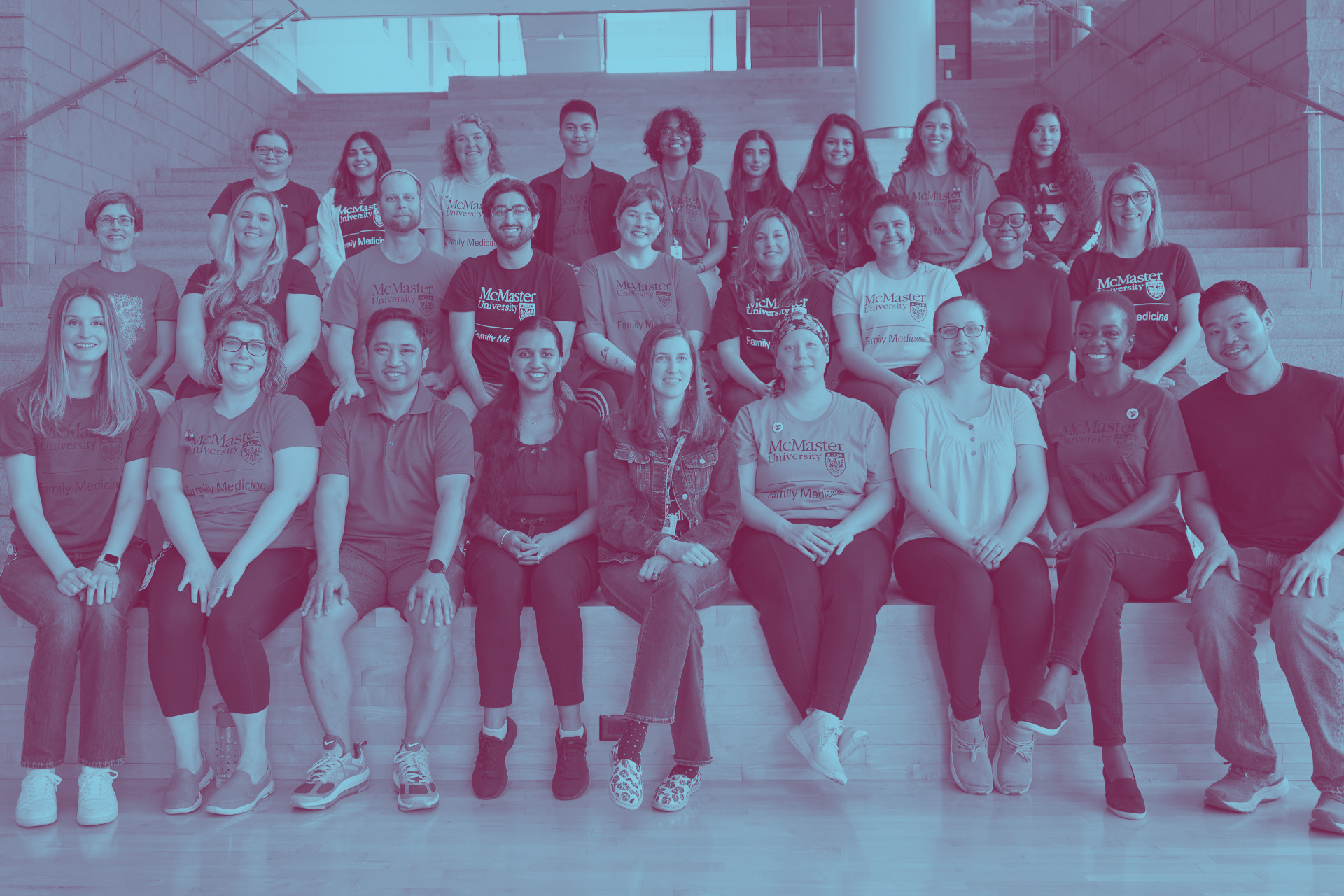
POP-UP
“Rich And Poor People Seek To Understand Each Other”: A Middle Ground Video
"Rich people and poor people came together to see if they could understand each other. Participants included successful businessmen, people experiencing homelessness, and college students."
POP-UP
“Two Kinds of Power in the Workplace”: A Video
We all wield two types of power in the workplace; positional and personal. Positional power is directly related to the authority of your position. Personal power, on the other hand, is more nuanced.
POP-UP
“What I Wish My Professor Knew”: A Video
This video provides a brief introduction to some of the relevant issues for First-Generation and/or Low-Income students at Stanford.

POP-UP
“What Is Bias, and What Can Medical Professionals Do to Address It?”: A Video
Explains implicit or unconscious bias and how health care providers and others can stop it from negatively affecting people.
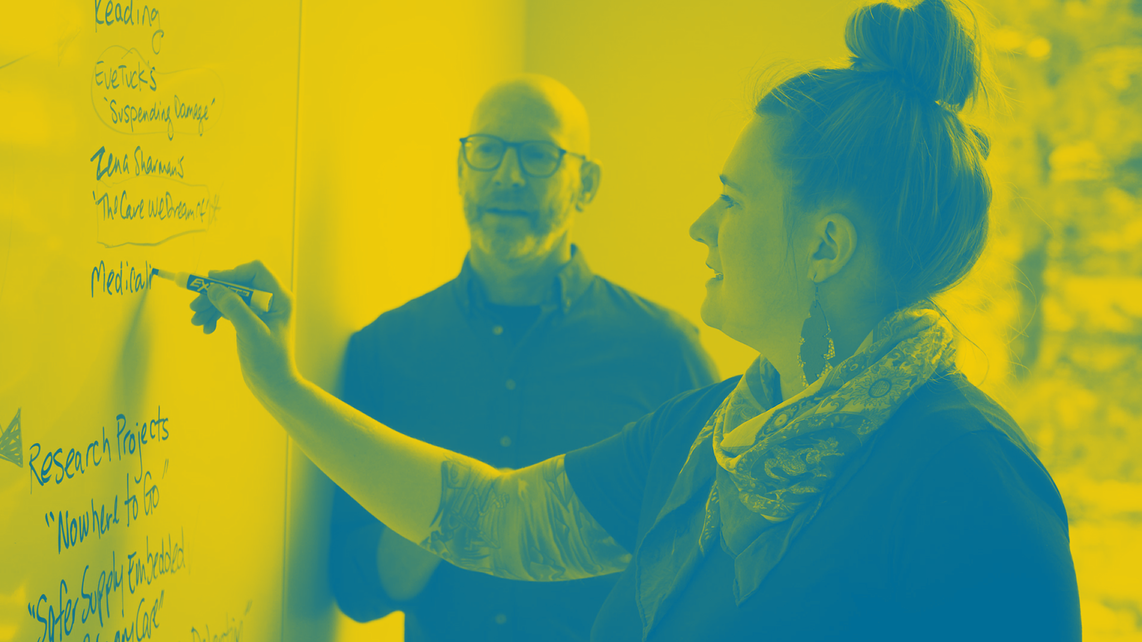
WEBSITE
“White Privilege: Unpacking the Invisible Knapsack” by Peggy McIntosh
First appeared in Peace and Freedom Magazine, July/August, 1989, pp. 10-12; a publication of the Women’s International League for Peace and Freedom
WEBSITE
Accessibility of Medical Diagnostic Equipment for Patients with Disability: Observations from Physicians
"Even if physicians have accessible equipment, they do not always use it in examining patients with disability. Future efforts will need to consider ways to eliminate these access barriers in clinical practice. Given small sample size, results are not generalizable to physicians nationwide and globally."
WEBSITE
Addressing disparities in academic medicine: What of the minority tax?
"The authors examine the components of the URMM responsibility disparity and use information from the medical literature and from human resources to suggest practical steps that can be taken by academic leaders and policymakers to move toward establishing faculty equity and thus increase the numbers of black, Latino, and Native American faculty in academic medicine."
WEBSITE
Addressing the Minority Tax: Perspectives From Two Diversity Leaders on Building Minority Faculty Success in Academic Medicine
"This Invited Commentary explores disparities in academic medicine, known as the minority tax, through the careers of 2 men in senior positions, who are underrepresented minorities in medicine (URMMs), with the goal of sharing real-world experiences that other URMM faculty can use to their benefit."
WEBSITE
Adopting Inclusive Adopting Inclusive Language as par e Language as part of Patient Center atient Centered Care
Communication is critical to ensure equitable health outcomes and a positive care experience for our patients. The words we choose and the way we communicate hold power and send a signal about our own understanding, comfort, and openness to diversity. Sometimes communications lead to an environment of distrust, causing our patients to withhold information and potentially impacting our ability to provide quality care. Taking the time to develop an inclusive language practice demonstrates an interest in meeting our patients where they are and signals our desire for a truly patient-centered care environment.
POP-UP
Ageism (graphic 1)
POP-UP
Ageism (graphic 3)
POP-UP
Ageism (graphic 4)
WEBSITE
Ageism First Aid
WEBSITE
Ageism Online Learning Module
WEBSITE
Aging Pride is in Vogue

WEBSITE
An ironic guide to colonialism in global health
"There is something axiomatic about the idea of an evidence-based approach to global health."
WEBSITE
Article: Cultural qualities and antenatal care for black African women: A literature review
The need to consider black African women's cultural beliefs and practices during antenatal care provision has been highlighted in this literature review. It is noted that there are other factors that may affect black African women's access and engagement with antenatal care, and women themselves have highlighted a lack of cultural sensitivity and valuing of sociocultural norms when asked about their experiences of antenatal care.
WEBSITE
Article: Culturally Sensitive Prenatal Care for Southeast Asians
To evaluate the success of the Southeast Asian Health Project in terms of client satisfaction with the prenatal care and other services. To obtain additional data about Southeast Asian women's health practices regarding childbearing. Design: Survey through questionnaires administered as interviews. Setting: In clients' homes or via telephone. Participants: 119 women from SEAHP's case files of recently delivered clients. Measurements and Main Results: Interviews were conducted by four community workers fluent in Cambodian or Lao. The majority of women were satisfied with SEAHP, particularly the interpretation and education in native languages. Women were also satisfied with SEAHP, encouraging others to seek care. Conclusions: SEAHP appears to meet prenatal care needs of Southeast Asian women in Long Beach, California. More objective outcome data await analyses, but the program's approach may ensure access to and use of health services.
WEBSITE
Article: Defining health and health inequalities
We suggest health should be defined as a structural, functional and emotional state that is compatible with effective life as an individual and as a member of society. We provide a new definition of health inequalities. Population health can be defined to encompass the average, distribution and inequalities in health within a society.
WEBSITE
Article: Defining health and health inequalities
We suggest health should be defined as a structural, functional and emotional state that is compatible with effective life as an individual and as a member of society. We provide a new definition of health inequalities. Population health can be defined to encompass the average, distribution and inequalities in health within a society.
WEBSITE
Article: Differential attainment
Differential attainment (DA) is what we call the gap between attainment levels of different groups of doctors. It occurs across many professions. It exists in both undergraduate and postgraduate contexts, across exam pass rates, recruitment and Annual Review of Competence Progression outcomes and can be an indicator that training and medical education may not be fair. Differentials that exist because of ability are expected and appropriate. Differentials connected solely to age, gender or ethnicity of a particular group are unfair. Our standards require training pathways to be fair for everyone.
WEBSITE
Article: Differential attainment in medical education and training
Differential attainment appears at medical school and persists after qualification. As a result, ethnic minority graduates of UK medical schools have worse outcomes during recruitment for foundation, specialty training, and consultant posts; are more likely to fail examinations; and progress more slowly through training even when exam failure has been accounted for.
WEBSITE
Article: Dimensions in EDI Policy Development – Considerations for Emerging Work Ethics
This chapter reviews literature for a discussion on future influences on workplace diversity management. With an emphasis on the role culture plays on the moral philosophy of individuals, it is taking the viewpoint that there is a distinction between workplace and business ethics. By placing the individual within the realm of non-traditional and traditional, the chapter intends to add to the discourse of future influences on EDI policy development and subsequent understanding. The term language is viewed not only from its linguistic function. It is also presented from its ability to influence power dynamics. When speaking of language, due to the geographical regions of the research papers and the dominant research areas, the performative language is English. This chapter applies a multidisciplinary lens as it presents the following dimensions as key determinants in the emerging workplace ethical field: diversity's constant state of discovery and redefinition, multiculturalism, interculturalism, and intersectionality.
WEBSITE
Article: Diversity and Inclusion Efforts That Really Work
A Stanford and Harvard professor convened a symposium on what’s actually working to improve diversity and inclusion in organizational life. In this article, David Pedulla summarizes the main findings. First, organizations should set goals, collect data, and hold people accountable for improving diversity within the organization. Second, organizations should abandon traditional discrimination and harassment reporting systems—these often lead to retaliation. Employee Assistance Plans (EAPs), ombuds offices, and transformative dispute resolution systems can not only play a critical role in reducing retaliation but also provide fuel for organizational change. Third, organizations should check to ensure that technologies used to assist in hiring and promotion aren’t inherently biased. Fourth, companies must avoid tokenism. Finally, organizations should get managers and other leaders involved in diversity programs from the start. This will increase buy-in and lead to smooth implementation.
WEBSITE
Article: Effectiveness of interventions to provide culturally appropriate maternity care in increasing uptake of skilled maternity care: a systematic review
Addressing cultural factors that affect uptake of skilled maternity care is recognized as an important step in improving maternal and newborn health. This article describes a systematic review to examine the evidence available on the effects of interventions to provide culturally appropriate maternity care on the use of skilled maternity care during pregnancy, for birth or in the postpartum period. Items published in English, French and/or Spanish between 1 January 1990 and 31 March 2014 were considered. Fifteen studies describing a range of interventions met the inclusion criteria. Data were extracted on population and intervention characteristics; study design; definitions and data for relevant outcomes; and the contexts and conditions in which interventions occurred. Because most of the included studies focus on antenatal care outcomes, evidence of impact is particularly limited for care seeking for birth and after birth. Evidence in this review is clustered within a small number of countries, and evidence from low- and middle-income countries is notably lacking. Interventions largely had positive effects on uptake of skilled maternity care. Cultural factors are often not the sole factor affecting populations’ use of maternity care services. Broader social, economic, geographical and political factors interacted with cultural factors to affect targeted populations’ access to services in included studies. Programmes and policies should seek to establish an enabling environment and support respectful dialogue with communities to improve use of skilled maternity care. Whilst issues of culture are being recognized by programmes and researchers as being important, interventions that explicitly incorporate issues of culture are rarely evaluated.
WEBSITE
Article: Employment and working conditions of nurses – where and how health inequalities have increased during the COVID-19 pandemic?
The protection of nurses’ health is paramount. International and national enforceable standards are needed, along with economic and health policies designed to substantially improve employment and working conditions for nurses and work–life balance. More knowledge is needed to understand the pathways and mechanisms on how precariousness might affect nurses’ health and monitor the progress towards nurses’ health equity.
WEBSITE
Article: Health inequalities
The evidence bearing on the nature and extent of health inequalities documented globally and in the UK is addressed, twin foci within the UK being (a) associations between socioeconomic classification and health and longevity, and (b) the notion of a ‘social gradient’. A consideration of the various ‘models’ that have been developed by sociologists and their allies – most conspicuously social epidemiologists – to account for (a) and (b) is offered, drawing on government-sponsored commissions and reviews as well as the peer-reviewed literature. This is followed by a portrayal of specifically sociological theories of health inequalities, featuring those that hold social structures as well as cultural shifts in convention and behaviour to be causally efficacious for health inequalities. The summary and conclusions of the review incorporate an outline of pertinent questions the sociological community has so far been reluctant to address and an agenda for future research.
WEBSITE
Article: Improving Business IQ in Medicine Through Mentorship and Education
Students, residents, and fellows all express a desire to gain more business knowledge throughout their education and training, but many do not know where to begin or have access to programs that can further their knowledge. Whether you are an employed or private practice physician, academic or community based, improving your business intelligence will help you get a seat at the table where decisions are made and give you the skills to influence those decisions.
WEBSITE
Article: Indigenous identity and traditional medicine – Pharmacy at the crossroads
Many health care professionals may consider traditional medicine and healing to be superstitious practices that hinder evidence-based therapy, cause harm to the patient and burden the health care system. But to the Canadian First Nations, Inuit and Métis people (collectively referred to as Indigenous people in this article), who have long withstood oppressive and marginalized health care treatments, it is an integral part of regaining their autonomy and empowerment. Pharmacists, who are at the forefront of community health care, must respect the socioeconomic importance of traditional medicine in Indigenous communities, rebuild trusting patient relationships and ultimately help to establish the best patient and population outcomes.
WEBSITE
Article: Integrating traditional indigenous medicine and western biomedicine into health systems: a review of Nicaraguan health policies and miskitu health services
we conducted a review of the policy impact of UNDRIP on health services accessible to the Miskitu indigenous peoples of the North Atlantic Autonomous Region (RAAN). We found that although measures to create therapeutic cooperation are woven into Nicaraguan health plans at the national and regional level, in practice, the delivery of integrated health services has been implemented with varying results. Our review suggests that the method of policy implementation and efforts to foster intercultural collaborative approaches involving respectful community engagement are important factors when attempting to assess the effectiveness of UNDRIP implementation into national health policy and promoting traditional medicine access. In response, more study and close monitoring of legislation that acts to implement or align with UNDRIP Article 24 is necessary to ensure adequate promotion and access to traditional medicines and health services for indigenous populations in Nicaragua and beyond.
WEBSITE
Article: Interventions to provide culturally-appropriate maternity care services: factors affecting implementation
The World Health Organization recently made a recommendation supporting ‘culturally-appropriate’ maternity care services to improve maternal and newborn health. This recommendation results, in part, from a systematic review we conducted, which showed that interventions to provide culturally-appropriate maternity care have largely improved women’s use of skilled maternity care. Factors relating to the implementation of these interventions can have implications for their success. This paper examines stakeholders’ perspectives and experiences of these interventions, and facilitators and barriers to implementation; and concludes with how they relate to the effects of the interventions on care-seeking outcomes.
WEBSITE
Article: Mentorship in Medicine and Other Health Professions
Mentoring skills are valuable assets for academic medicine and allied health faculty, who influence and help shape the careers of the next generation of healthcare providers. Mentors are role models who also act as guides for students’ personal and professional development over time. Mentors can be instrumental in conveying explicit academic knowledge required to master curriculum content. Importantly, they can enhance implicit knowledge about the “hidden curriculum” of professionalism, ethics, values, and the art of medicine not learned from texts.
WEBSITE
Article: Mentorship of Women in Academic Medicine: a Systematic Review
Our review suggests that mentorship programs designed for women, regardless of the model, are met with high satisfaction and can help promote and retain women in academic medicine. No clear best practices for mentorship emerged in the literature. Institutions, therefore, can individualize their mentorship programs and models to available resources and goals. These results demonstrate the importance of more widespread implementation of mentorship programs to more effectively facilitate professional development and success of women in academic medicine.
WEBSITE
Article: Moving toward holistic wellness, empowerment and self-determination for Indigenous peoples in Canada: Can traditional Indigenous health care practices increase ownership over health and health care decisions?
This study aimed to understand the role that traditional Indigenous health care practices can play in increasing individual-level self-determination over health care and improving health outcomes for urban Indigenous peoples in Canada.
WEBSITE
Article: Peer Support for Clinicians – A Programmatic Approach
Burnout is plaguing the culture of medicine and is linked to several primary causes including long work hours, increasingly burdensome documentation, and resource constraints. Beyond these, additional emotional stressors for physicians are involvement in an adverse event, especially one that involves a medical error, and malpractice litigation. The authors argue that it is imperative that health care institutions devote resources to programs that support physician well-being and resilience. Doing so after adverse and other emotionally stressful events, such as the death of a colleague or caring for victims of a mass trauma, is crucial as clinicians are often at their most vulnerable during such times. To this end, the Center for Professionalism and Peer Support at Brigham and Women’s Hospital redesigned the peer support program in 2009 to provide one-on-one peer support.
WEBSITE
Article: Peer support programs in the fields of medicine and nursing – a systematic search and narrative review
Peer-provided services exist in many different domains and professions. However, there is a knowledge gap in the existing programs’ descriptions and grouping that hinders creating new high-quality peer support programs. The objectives of this article are two-fold in describing existing peer support programs published in the literature in the medical field and evaluating their descriptive quality.
WEBSITE
Article: The challenges of understanding differential attainment in postgraduate medical education
The gap in achievement between different demographic groups undertaking the same assessment is known as differential attainment. Differential attainment exists within and outside medicine and across undergraduate and postgraduate studies.1 We propose that performance in undergraduate and postgraduate settings should be seen as a continuum. There is benefit in having longitudinal data to promote our understanding of differential attainment.
WEBSITE
Article: The do’s, don’ts and don’t knows of redressing differential attainment related to race/ethnicity in medical schools
Systematic and structural inequities in power and privilege create differential attainment whereby differences in average levels of performance are observed between students from different socio-demographic groups. This paper reviews the international evidence on differential attainment related to ethnicity/race in medical school, drawing together the key messages from research to date to provide guidance for educators to operationalize and enact change and identify areas for further research.
WEBSITE
Article: The Impact of Working from Home on Mental Health: A Cross-Sectional Study of Canadian Worker’s Mental Health during the Third Wave of the COVID-19 Pandemic
The COVID-19 pandemic has seen a considerable expansion in the way work settings are structured, with a continuum emerging between working fully in-person and from home. The pandemic has also exacerbated many risk factors for poor mental health in the workplace, especially in public-facing jobs. Therefore, we sought to test the potential relationship between work setting and self-rated mental health. To do so, we modeled the association of work setting (only working from home, only in-person, hybrid) on self-rated mental health (Excellent/Very Good/Good vs. Fair/Poor) in an online survey of Canadian workers during the third wave of COVID-19. We conclude that hybrid work arrangements were associated with positive self-rated mental health. Compliance with vaccination, masking, and distancing recommendations did not meaningfully mediate this relationship.
WEBSITE
Article: The Political Economy of Health – A Research Agenda for Addressing Health Inequalities in Canada
Public policy creates health inequalities among Canadians by inequitably distributing the social determinants of health (SDOH). Political decisions by authorities bring about these public policies, yet to date there has been little resistance to these decisions by the Canadian public. This article proposes a research agenda for investigating why this might be the case by considering a) Canada’s identification as a liberal welfare state; b) the relative power and influence of the corporate and business sector, labour, and civil society in shaping SDOH-related public policy-making; c) how population health researchers and public health practitioners understand health inequalities and their role in reducing them; and d) the public’s understanding of SDOH and public policy-making.
WEBSITE
Article: The Sociopolitical Context of Canada’s National Standard for Psychological Health and Safety in the Workplace: Navigating Policy Implementation
In January 2013, Canada introduced the National Standard for Psychological Health and Safety in the Workplace. This paper describes how the standard, which is the first of its kind internationally, came to be the instrument of choice within the current Canadian sociopolitical climate. A key consideration was that the policy tool had to be packaged in a manner that would be accessible and relevant across all workplaces and across all provinces and territories. This paper explores possibilities for future regulation of the standard.
WEBSITE
Article: The value of mentorship in medical education
Article: The Medical Mentorship Programme has been shown to be an effective conduit for supporting the transfer of learning needed to address performance gaps in students. The programme increased the confidence of students in preparation for clinical practice and allowed junior doctors to reflect on their professional development. The programme combined complementary teaching techniques – mentorship, simulation and direct clinical experience – to aid the professional development of both students and mentors.
WEBSITE
Article: Wellbeing and mental health amongst medical students in Canada
There is abundant data revealing that there is significant rate of rates of Psychiatric morbidity, psychological stress, and burnout in the medical student population. A core study group in the UK collaborated with 12 countries around the world to review medical student wellness. In this context we surveyed 101 medical students at the Cummings medical school, Calgary, Canada during the height of the COVID pandemic regarding their wellbeing and mental health.
WEBSITE
Article: What can Western medicine learn from Indigenous healing traditions?
The differences between traditional healing practices and biomedical medicine deserve highlighting. Traditional practices emphasize communication with spirit beings and direct requests for healing. This communication occurs through prayer, song and ceremony. Additionally, one looks for areas of disharmony and imbalance within the external community, within the community of one’s mind, and in the relationship with our bodies, the earth, the plant people, the animal people and all of creation. Healing is achieved through achieving balance and harmony in our many relationships. The approach to each person is different because each person is unique and has their own set of imbalances. By contrast, biomedicine generally looks for the one treatment that will benefit the highest number of people with a particular disease, such as HIV.
WEBSITE
Article: Why do EDI policies fail? An inhabited institutions perspective
Equity, diversity and inclusion (EDI) policies have proliferated in recent decades, but studies have repeatedly noted their inefficacy and adverse effects. To understand the potential root causes of the inefficiency of EDI policies, this study examines how they are inhabited by individuals at the ground level.
WEBSITE
Article: Workplace Mental Health – A Review and Recommendations
Creating mentally healthy workplaces requires an investment of time, resources and leadership, but the outcomes are worth it for businesses and employees. For this reason, CAMH, in collaboration with business leaders and workplace mental health experts is embarking on a journey to promote mentally healthier workplaces across Canada. Informed by evidence and best practice we make five recommendations for business leaders and other employers to consider as they strive to support mental health in their workplaces
WEBSITE
Articles: Peer Support in Critical Care – A Systematic Review
Peer support appeared to reduce psychologic morbidity and increase social support. The evidence for peer support in critically ill populations is limited. There is a need for well-designed and rigorously reported research into this complex intervention.
POP-UP
Book: Beneath the White Coat
POP-UP
Book: Inequalities in Health
POP-UP
Book: Medical Mentoring
POP-UP
Books for Accessibility
These books explore Accessibility in medicine and provide concrete strategies to confront it.

POP-UP
Books for Bias
These books explore Bias in medicine and provide concrete strategies to confront them.

POP-UP
Books for Colonialism
These books explore Colonialism in medicine and provide concrete strategies to confront them.
POP-UP
Books for Minority Tax
These books explore Minority Tax in medicine and provide concrete strategies to confront it.

POP-UP
Books for Privilege
These books explore Privilege in medicine and provide concrete strategies to confront them.
POP-UP
Burnout and the Minority Tax Faced by Black Physicians: A Video
"As we explore the Black physician experience in the U.S., Dr. Jordan explains the “minority tax” not faced by other physicians. The minority tax is evident in how physicians of color must “navigate a racist healthcare system,” are “constantly asked about credentials,” and are “constantly second guessed.” This creates psychological stressors that can include leaving medicine or academia entirely, especially when left without proper peer or institutional supports."
POP-UP
Classism (graphic 1)
POP-UP
Classism (graphic 2)
POP-UP
Classism (graphic 3)
POP-UP
Classism (graphic 4)
WEBSITE
Clinician’s Guide to Microaggressions
This book by by Nikki E. Akparewa & Porché Mysticque Steele is "for the everyday clinician, faculty member, and clinical instructor who is searching for tools needed to have authentic conversations about race, racism, and health equity."

POP-UP
Colonialism: A Crash Course Video
"unravel the impacts of colonialism at different times throughout history from Taiwan to Myanmar as we examine the longstanding impacts of these relationships. We’ll also take a look at how some countries today, like Thailand, have taken the control of the narrative through culinary colonization."

POP-UP
Colonialism: A Video
Many important events and movements led to the development of the world we know and sometimes love. Today we will look at one of them."

POP-UP
Combating Racism and Place-ism in Medicine: a TED Talk
Provides good definitions, practical statistics, and recommendations on how to overcome the systematic barriers and make better healthcare decisions individually, especially through the use of technology.
WEBSITE
Conducting Accessible Research: Including People With Disabilities in Public Health, Epidemiological, and Outcomes Studies
"We outline our approach to “accessible research design”—research accessible to and inclusive of people with disabilities. We describe a model that includes 3 tiers: universal design, accommodations, and modifications. Through our work on several large-scale research studies, we provide pragmatic examples of accessible research design. Making efforts to include people with disabilities in public health, epidemiological, and outcomes studies will enhance the interpretability of findings for a significant patient population."
POP-UP
Coping With Uncertainty
POP-UP
De-escalation (graphic 1)
POP-UP
De-escalation (graphic 2)
POP-UP
De-escalation (graphic 3)
POP-UP
Definition:
POP-UP
Definition:
POP-UP
Definition: DEI Policy

POP-UP
Doctor Reacts to John Oliver’s Last Week Tonight: Bias in Medicine
A reflection from the perspective of a doctor that defines correlation vs causation, walks through the referenced studies, and identifies systemic barriers that need to be addressed so that outcomes are not incorrectly attributed to bias.
POP-UP
Eliminating Microaggressions
Eliminating Microaggressions: The Next Level of Inclusion | Tiffany Alvoid | TEDxOakland: In this Talk Tiffany, lays out how this behavior manifests itself, the role you play, and what you can do to avoid perpetuating its continued existence in society.
WEBSITE
Enhancing Diversity in Training Programs
"Institutional training programs are required to demonstrate successful efforts to recruit an outstanding and diverse trainee pool. Applicants are strongly encouraged to read the Institutional Training Grant Funding Opportunity Announcements and the latest Guide Notice on NIH's Interest in Diversity for details about the groups that are currently considered underrepresented in the biomedical sciences."

POP-UP
Films and Cinematography Addressing Privilege
Hard-hitting and powerful films that demonstrate the nuances of Privilege in daily life.

POP-UP
Films and Cinematography representing Bias
Hard-hitting and powerful films that demonstrate the nuances of Bias in daily life.
POP-UP
Films representing Microaggression
Hard-hitting and powerful films that demonstrate the nuances of microaggressions in daily life
WEBSITE
From raw pain to raw power
POP-UP
Gaslighting (graphic 1)
POP-UP
Gaslighting (graphic 2)
POP-UP
Gaslighting (graphic 3)
POP-UP
Graphic:
https://www.chieflearningofficer.com/wp-content/uploads/2022/04/AdobeStock_498924974-scaled-1.jpeg
POP-UP
Graphic:
https://imageio.forbes.com/blogs-images/goncalodevasconcelos/files/2017/11/Mentorship-shutterstock-1200x919.jpg?format=jpg&width=1200
POP-UP
Graphic:
https://d22bbllmj4tvv8.cloudfront.net/d5/c0/efaeb96d41e3a674f8d2ed576bed/what-is-mentoring1-square.jpg
POP-UP
Graphic:
https://quorum.hqontario.ca/Portals/0/Users/243/95/10995/Screen%20Shot%202020-01-17%20at%203.45.23%20PM.png?ver=2020-01-17-154547-730
POP-UP
Graphic:
data:image/jpeg;base64,/9j/4AAQSkZJRgABAQAAAQABAAD/2wCEAAkGBxQUExYUFBQXFxYYGR8bFhgZGRweGxscGRwbHhkbIiIeIioiIR8nHxsZIzMjJywtMDAwHiE2OzYvOiovMC0BCwsLDw4PGxERHC8nIicvLTo4OC8xLy0vOjEtODgxLS8vLzEyLy8vLy0vLzEvMTEvMS8vLy8vLy8vLy8vLy8vL//AABEIAL8BCAMBIgACEQEDEQH/xAAbAAABBQEBAAAAAAAAAAAAAAACAQMEBQYAB//EAD8QAAICAQMCBQIDBQUHBAMAAAECAxESAAQhBTEGEyJBUTJhFCNxQlKBkaEzYrHh8AdygrLB0fEVFkNUJDSS/8QAGAEBAQEBAQAAAAAAAAAAAAAAAAECAwT/xAAsEQACAgEDAwIGAgMBAAAAAAAAAQIRIQMSMSJBUXGhE1JhgZGxMkLB0fAE/9oADAMBAAIRAxEAPwCyr+Oix4++urtpRxrmbFI9tcE0Vf5aLUsoOP8APRFdEFP8dHjqWAFGiCfPf+mnMe/GiVdSwN199cF07WiK6lgbC6XGtOlPbS46zYGsB+ulKadKa5V50A1h8aULx9tGRov++gGyNC68VWnGTXFdAN46XD20ZHGl1QMAVxWkOnyK/wCugC6AaA0JTUgLVfGgxv8AhpYGcP4aGtP4/Ohx+3bVsDNWdNkfatSSPc/000y+2rYGWXQlf8tPFf6f10B1qwNtoPL07jodLINVrtOleNdqkCUVpwL7/fSDTir/AJ6jZoHEXo8dGq37d9GiVrNgGvfRgd9EBpcefnWbAigf9tFWjQaWr51ADolP9dct6ML9tUA1rtF/DS6gE/1WhK1pwCtIRoBKrSBdFpe2qACNdXfR1pK0AmPOkrRga6tAN++uw0Q1x9tQDeOkYadr7aE1oBptIV08w0hXQEdhzoSL0+2grVAwV9zoCn+WpLLpsrq2COxrQFdPsumypvWrA2eP+2u0TDXapCsHifZ//Zj/AJn/ALaL/wB07P8A+zF/M/8AbWEi8ESmORjKgkQn0USCAayDj2/ga7GjxpmLwZO0eYMeV0Y7IYH2WyMbIojmiKomxfTbpfMXbPwejL4r2ZP/AOzF/OtPp4j2hr/8mD+Mij/rry2LwtKyI4dAhNSlsgYSPqEgxsY8WfawTS+rTx8F7gTCEmNcrwdmbBmHOHCkhyOQpHIBIvRw0/mFS8HrEHU4GHpnha+1Sof+upyL8fzHOvHYfAspjeRpIlIIwBsiQGhlkB6RZrkcEHLHTbeF93CgeNqJ/tEjdkaM3RyvEULBLAkAEN9JDHGyD4kNsvB7TidKIz8H+WvCt+d7DL5Mks6ycUomY3kaWiGI5PGtvsvBbdtzuZZ5CP7FZWCE8Agljk4HuRj296NSenGCTcuSxjJ8I2W76pBF/azxRn4aRAf5E3qtn8abFOTuUJ+EDN/yg6pE8K7NpVRNuuKIplcO5IZicSLcho7R1Y0wBrk4vjddS2UEqBZolMbZCJMSWdsSfQe6+kHEArfLdhrnugmuTSgyKn+0HYH/AOZv18p6/oNXOw8QbWY1FuImP7uYVv8A+Won+Wqh+n7beRJK0aM1UChUtai0KtiAwIxYq64gH1KCCNV/U/C+zl/MEQtKMiQkKsifSzoq+ljfIC0bsGzS61ug8ZXuPhvlG7A/XSAa8x3fhrcbf19P3MhUjOOMSfXGR9S9kbg/SQDXILe0qLqPWI4VmuKdTyUKgyJXcMoCEEcgjkjn4Orsi1akvvgy4yXY9FA40g1iJfGu525Vd1sCMiFDRSBrYgUoAyGR/dyv9dWvT/HOykJVpDC47rMpQgjuCeVv7XqbHV/rJDRaKuNdGQQGDAgiwQbBH2I4Oqh/EERlkhjDSvELmK4iOPvw7k97HZQx78cGs0C1rSVqsk324vBY4M8cgpna8e115eVXxdahv1jeIyh9krgkgeVuFLGu/pdVJ4B1FT7mqfg0FaGtU/8A7ogH9qJoO1+bC6qL+XUMlffLVjsuoQzX5U0cn+46sf1oE6tMyP1pD30dV+uuA1ANG9JjenSNCdAAy6bI06w+dIw+L1QNV8aaK86kMP6abrjQDJX302y/y0+y6DDvxq2Bll12iZddrVgql3w8yUKkhKMVfEAiwsbBuT8PX8DfAFKCpZT+HmuzRCigD+zwaKE84mwDzweRT7dXMkb5Mhk6g4oFlGCBryHZiwjA59u1Wbf6NupZJfNeUKY5Ji8IkYvigISMxAYoopWzNkkj51xcaPVdk+HcFgsqvI4kLLeEdhkbyhZCdgxJB7cH5OnhOvlhfLJGIWsQFoYY2o7EM4ACi1IIvjVV0iVkj2w80xRjZNLMwrjNkYMMrUNZfkg8Fh3IIsuibmVoI2lzacRF5QGK1wTGpUftsuNqB7kn2vEkwmiWkqI62GImUErQKksrWTyecRRING7+dBtGUlUxcE2EbIFlIGSVz2FSqAbPBB4Lar+mdRmC7dzKX8zbSzzKAuKAKrR4gC1piUAvmm+NL0zq8rBC0vCbDzpHCoR5pIII4rIKGBHazyNXYxuGd90UydS20jBVWKAu1A4XE7eUa9uXQ432Uj2vVlu9wyhljNyFbkfCwq45CML3NCiRSlkyKnIUGeibWSPZQqpLv5cbEEhcFYAiIMKINuSCbI+R6SJnTYRGMwbwDBnugzM3qUKBTAG2sBQXLEY5MNWUr57YM1zQ8sKQxN6zWP1FA/1BEThQMgcVpRy3LHntX4tI1yjCMH18kiwAxKchssgsqTqLVc1YLhjpxYPPbKUXESAiMr+uOdFIcMKbzg62VoFAO3CPpx2I4UlSLtsm/LVWOfrbgtkGzlJamoMMWy1OPUqjfoP7ycuxEZXjhnoVj+0GyNVyrMPSXQ2ptdVkhaTGKIsVIDRscfMJSQF3VnCkSQyJGWikALDIkltOTqzARLxHJcdqKWYBykyKTbRNHcsiKCQQDRKghZJmESuSyvnbSyH0ZEUomKLdxchWcD4PblS6cmucIKL8tVVTYeUm1yVHlkYksASQkdkkJfrINWbJe2yzFLIfzFu1YqQRkSF9NL6fTi9AmvtpmHb2zSTKFXlStG25BEbWuLRowZo5FI4Iqqa03csoLFQQReeMSuY7IZGHpt2AYZR92Q2vrUg55ZXSQPVt9IS8aUJCwVCAuQOKyeWVclGkQMko/eXMLiwOj6h0jbyyrLNt1ZgpDhgDw1gJXZnvkV9NGjzqL5ibYKXBMzehY4mZ2PfCJLxDlVoCR1tFNEngFzc9KkngZJ5PJRlb8uI1GnHeSQjKVrrgYqeeCKJ2sVWDm/yZHabWZpXg6bLLFtufPfPKKNiTYRj6iwFD0GyfevVrW9N6dDtUSJeRmKUn1NIayllo2CParwHro4kq/CEhijRIykQNRoufmGNRbMAB9XDMR9TDKiWq42wCcGfyw0hQIpCMjNh6KoFSQBIIiCpZCAwuidym5Y7e7EYpZH49uY18xpGZlbizbs2BXJlK8S4t5fBwIwYigBpnfTLDG8zFVw+tu/kgHtzy0jF+L/aZ+eWOrCPFmzdhILcKoY2ApYNwaBcUQy9wQx+AsOeZJFDSGMlgVJcflSoWAcMDbKFbEHIehqUk0CMJ5KxuDqMixL5kJ2sbeiBpJlaRnc+gMmJILE8n1FbJI4sDuejwbjISRRrN2LKuDqwNLIrLTYXR5uj83pvqkce2kkm4eYpMYpZXOMPlx3HGoe7drB7gsMyDQrXbHclUik3Ewt0jkgMrojyuYw0gYKoART5dFuRyC2JrV+qI0Zzw549mhbyN9ZCnEyV+YjLwQ1fWPaxz7+rXpUE6yKro4dGFqymwR9jrB+IfCke5JeIrFOo9SkMAaOPI5IX2DC8axOQAK5zpm/3fSpcZImEbn1RtzG/95GFqHr3H2sfHpqGpxh+Di4tHsZHxoK1F6N1aLcxCWF7U8EHhlP7rD2P+I5FjU0HXBqsMyAdIw/poyK0JGgBx0BFaMjSH7aAbbTbjTjjSVoBhzXOu0RX512tWCqmxDEZS/LESml54Bs0CxsAfb27hqbqYRgrvIHkb8mONcpGCjmhgTjQu2AIOQ
POP-UP
Graphic:
https://medicalstaff.vch.ca/PublishingImages/Getty-1221794141peer-support.jpg?RenditionID=1
POP-UP
Graphic: Compare and Contrast Terms
https://www.britishjournalofmidwifery.com/content/literature-review/cultural-qualities-and-antenatal-care-for-black-african-women-a-literature-review/
POP-UP
Graphic: DEI Vision
https://www.wcdsb.ca/wellbeing/equity-diversity-and-inclusion/a-strategic-framework-for-edi-throughout-the-board/
POP-UP
Graphic: Environment
This image, developed by B.C.’s First Nations Health Authority, represents a fluid and holistic concept of health and wellness. The centre circle represents the individual human being. The second circle illustrates the importance of the mental, emotional, spiritual and physical facets of a healthy and balanced life. The third circle represents the overarching values that support wellness: respect, wisdom, responsibility and relationships. The fourth circle depicts the people and places around each human being. And the outer circle depicts the social, cultural, economic and environmental determinants of health and well-being. This image is intended as a starting point for individuals and communities to adapt to create their own models. https://www.catie.ca/positive-side/what-can-western-medicine-learn-from-indigenous-healing-traditions
POP-UP
Graphic: Health inequities in black Canadians
https://bloomberg.nursing.utoronto.ca/wp-content/uploads/2022/05/Health-Inequities-in-Black-Canadians_KR-002-crop.png
POP-UP
Graphic: Health Inequities, Social Determinants, and Intersectionality
https://nam.edu/wp-content/uploads/2016/12/health-inequities-social-determinants-and-intersectionality.png
POP-UP
Graphic: Insights and Recommendations for Reducing Health Inequities in the United States
https://ars.els-cdn.com/content/image/1-s2.0-S0735109716332752-gr1.jpg
POP-UP
Graphic: Mental Health in the Canadian Workplace
https://www.hrpa.ca/hr-insights/mental-health-week/
POP-UP
Graphic: Policy Strategic Pillars
https://equity.mcmaster.ca/strategy/towards-inclusive-excellence/four-pillars-edi-framework/
POP-UP
Graphic: Psychological Health and Safety in Canadian Workplaces
https://www.mhrc.ca/psychological-health-and-safety-in-canadian-workplaces
POP-UP
Helpful Websites Addressing “Accessibility”
A collection of reputable websites that explore how Accessibility is integrated in and affects society.

POP-UP
Helpful Websites Addressing “Bias”
A collection of reputable websites that explore how Bias are integrated in and affect society.
POP-UP
Helpful Websites Addressing “Colonialism”
A collection of reputable websites that explore how Colonialism is integrated in and affect society.
POP-UP
Helpful Websites Addressing “Power”
A collection of reputable websites that explore how Power is integrated in and affects society.
POP-UP
Helpful Websites Addressing Privilege
A collection of reputable websites that explore how Privilege is integrated in and affect society.

POP-UP
How Current Work Culture Recreates Colonial Systems: A Video
"we're about shining a light on the voices that are reimagining a new and just society through a revolutionary lens."
WEBSITE
How doctors describe patients matters — even in their notes
Article exploring the impact of having access to medical records, weight bias, how bias is transmitted between clinicians, etc.
WEBSITE
If I were a rich van…
WEBSITE
Implicit Association Test (IAT) Resource
"The Implicit Association Test (IAT) measures attitudes and beliefs that people may be unwilling or unable to report. The IAT may be especially interesting if it shows that you have an implicit attitude that you did not know about."

WEBSITE
Implicit Bias in Health Care
A CPSO eDialogue that defines implicit bias and gives real world examples and statistics, and concludes with these practical tips.
WEBSITE
Implicit Bias Training in a Residency Program: Aiming for Enduring Effects
"Several educational interventions regarding implicit bias have been developed for health care professionals, many of which foster reflection on individual biases and encourage personal awareness."
WEBSITE
In patient-provider interactions
"Innovations in training interventions are needed to decrease microaggressions and improve provider communication and rapport with patients of color during medical encounters."
POP-UP
Inclusive Language Guide
A culture of inclusion makes the world a better place for everyone! Building a welcoming environment begins with how we speak with one another. The District's Inclusive Language Guide serves as the foundation for respectful and welcoming communication with coworkers and residents. Cosumnes Community Services District believes everyone in our community should feel safe and connected.
WEBSITE
Inclusive Language Matters: Recommendations for Health Care Providers to Address Implicit Bias and Equitable Health Care
Stigmatizing language—written and verbal—can fuel implicit bias among health care professionals, leading to unintentional negative effects in how they care for patients. To provide equitable care, health care professionals and systems must become aware of the language they use and learn to replace biased language with inclusive language.
WEBSITE
Inclusive Language Resources
“Language is the truest identifier of who you are and where you come from.” – Elder Larry Grant, 2014
WEBSITE
Inclusive Language Use in Multicultural Business Organizations: The Effect on Creativity and Performance
Few studies have dealt with inclusive language use in multicultural organizations. This is unfortunate because it has been hypothesized that such organizations will be more creative and will perform better than mono-cultural organizations if communication issues are dealt with correctly by managers. In this study, we test the general hypothesis that inclusive language use by managers and employees in formal and informal situations will increase the creativity and performance in multicultural organizations. By use of responses from 676 individuals employed in privately owned multicultural companies, we found that management common language communication was strongly associated with performance but not with creativity. Openness to language diversity among employees, however, had strong relations with both creativity and performance. This indicates that management communication may provide information and a shared identity that can increase the performance of an organization. Yet in order to increase creativity, there is a need to also facilitate inclusive group processes. The findings provide new insights into the theoretical idea that diversity leads to creativity and performance if communication is managed correctly.
WEBSITE
Initiating Buprenorphine/Naloxone (bup/nal) in Correctional Facilities
Prescribing algorithm
POP-UP
Lack of Diversity in Health Care: A Health Disparity Video
A Ted x Lenox Village Women production with Dr. Kiaana Howard (DPT).
POP-UP
Local Organizations Addressing “Minority Tax”
Organizations in the Hamilton/ Southern-Ontario area that are making an effort to identify and combat Minority Tax.

POP-UP
Local Organizations Addressing Bias
Organizations in the Hamilton/ Southern-Ontario area that are making an effort to identify and combat Bias
WEBSITE
Lotto’s embarrassment of riches
POP-UP
Making healthcare more accessible for everyone, everywhere
"Yossi Matias announces new developments in AI research related to ARDA, DermAssist and Mobile Vitals. He shares two new projects focused on how smartphones may eventually help with diseases of the eye and heart."
POP-UP
Microaggressions in Healthcare
Microaggressions in Healthcare: Patient Experiences. Project ECHO's Katie Hara (MSW) and Christine Cervenka (MSW) discuss microaggressions and how they affect healthcare and in particular the patient experience.
WEBSITE
Microaggressions in Medicine
"Discusses the importance of understanding all categories of racism and expose the many ways prejudice manifests within medical training and clinical practice."
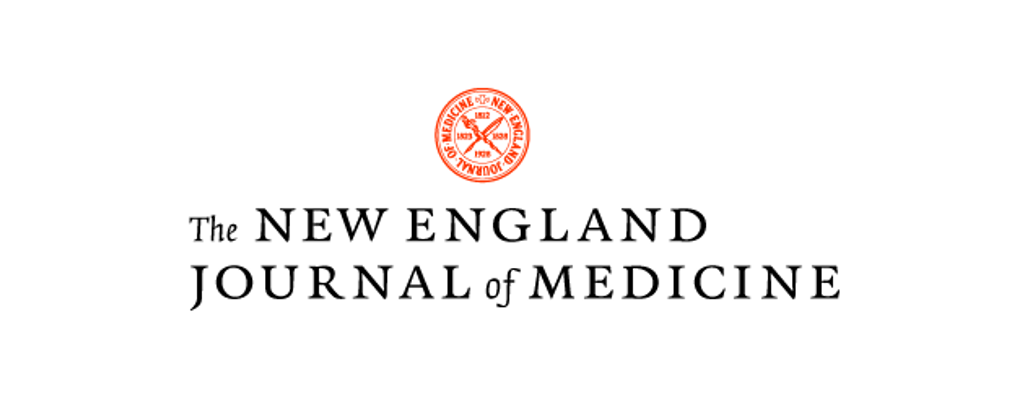
WEBSITE
Misrepresenting Race — The Role of Medical Schools in Propagating Physician Bias
New England Journal of Medicine article; "a team of researchers highlighted misrepresentations of race in U.S. medical school courses, and recommended ways to address the systemic racism that produces and reproduces these inaccuracies."

WEBSITE
Modern Medicine Is a Colonial Artifact: Introducing Decoloniality to Medical Education Research
" While there are various critical theories that may be applied in this reexamination, most do not adequately account for intersectional, intergenerational, and sociohistorical inequities encountered in the multiplicity of global contexts in practice teaching and research within medicine."
WEBSITE
Oppression
POP-UP
Oppression (graphic 1)
POP-UP
Oppression (graphic 2)
POP-UP
Oppression (graphic 3)
POP-UP
Oppression – Short Animation
POP-UP
Org.s Addressing Microaggressions
Organizations in the Hamilton/ Southern-Ontario area that are making an effort to identify and combat Microaggressions.
WEBSITE
Patient-centred access to health care: conceptualising access at the interface of health systems and populations
"This paper explains the comprehensiveness and dynamic nature of this conceptualisation of access to care and identifies relevant determinants that can have an impact on access from a multilevel perspective where factors related to health systems, institutions, organisations and providers are considered with factors at the individual, household, community, and population levels."
POP-UP
Podcast: Addressing differential attainment – by the Scotland Deanery
Hear from colleagues in the Scotland Deanery who are already using the GMC's data to understand differential attainment and designing pilot programmes to support all their trainees.
POP-UP
Podcast: Advancing Marginalized Students in Science – SACNAS, Mentorship, & Community
In this episode of Dear Grad Student, Elana chats with 4th year Chemistry PhD Candidate Guizella Rocabado () about Advancing Marginalized Students in Science. They discuss SACNAS (), Guizella's journey to founding her University's chapter (), and Guizella discusses important tips for marginalized students entering grad school & the importance of relationships along the way. Plus, they discuss important conversations in elevators and Elana gets to talk about "choose your own adventure" again.
POP-UP
Podcast: An overview of differential attainment.
An idea of the cause of the problem and some solutions.
POP-UP
Podcast: Building the Peer Support Physicians Need Sound Mind – Concerrsations about physician wellness and medical culture
“In medicine we’ve been held to really unreasonable expectations of what it means to be a physician. Even the idea of ‘health care heroes’ during the pandemic, which came from wanting to honour providers, has actually had the reverse consequence – making health care providers feel they need to be superheroes.”– Dr. Jo Shapiro
POP-UP
Podcast: Differential Attainment with special guest: Khalid Khan
This week, we have a very special guest, community pharmacist, head of training and professional standards at Imaan Pharmacy, Khalid Khan! We talk about differential attainment, an area in the profession full of new ideas and research. It affects all of us and if, like me, you didn’t know much about it, this is a brilliant episode to get you up to speed on the basics and why it’s so important.
POP-UP
Podcast: Equity, Diversity and Inclusion Podcast, What is Social Justice? Policy & Practice
Sean is joined by equity instructional specialist Daryl Howard, Ph.D., to talk about social justice and equity work in schools. Dr. Howard works at the district level in Montgomery County Public Schools and serves in numerous leadership positions. Sean and Dr. Howard chat about engagement in the classroom, his job in identifying and disrupting disproportionality within the education system, how he started doing this work, and more!
POP-UP
Podcast: Health Inequities and Decolonization
Luke has family connections to the Gunditjmara nation of Victoria (Australia) and is a Research Associate located within the Social Work Innovation Research Living Space (SWIRLS) at Flinders University. Through his research, Luke seeks to understand the role Indigenous culture plays as a protective factor within the child protection system, whilst also exploring the nuances between child safety and cultural safety. Luke has gained extensive experience working as an Aboriginal Health Worker using a strengths-based approach across diverse sectors including Prison Health, Primary Health Care, Public Housing, and Mental Health Services.
POP-UP
Podcast: How medicine mansplained women’s health
Until 1993, many researchers excluded women from clinical drug trials, leaving doctors in the dark about how new treatments work in more than half the population. This is the story of why that happened, the women who fought to change it, and what we still don’t know about how sex and gender affect health.
POP-UP
Podcast: How to Build a Peer Support System with Associate Professor and Research Scientist Johna Register-Mihalik
On today’s episode, I’m talking to Associate Professor and Research Scientist Dr. Johna Register-Mihalik about how to build a peer support system because you don’t have to go it alone in your career. Johna works at the University of North Carolina at Chapel Hill as an Associate Professor of Athletic Training and a Research Scientist studying mild traumatic brain injury. While still in undergrad, Johna cold-emailed a preeminent concussion researcher and managed to create an internship that changed the course of her career. In addition to her academic work, Johna has served on the Brain Injury Association of North Carolina’s Board and USA Baseball’s Medical and Safety Advisory Committee, as well as pursuing active professional service in national organizations like the National Athletic Trainers’ Association and the American College of Sports Medicine.
POP-UP
Podcast: Inequity in Healthcare Delivery
In this episode of Population Healthy Season 3: Race, Inequity, and Closing the Health Gap, we talk with experts about how inequities occur in health care settings and how who you are can impact your quality of care. Research has found that people of color may not only have less access to health care, but that the quality of care they do receive may also be lesser, and they may even face discrimination from providers. All of these factors can lead to dangerous outcomes such as a reluctance to seek care, delayed treatment, or even misdiagnoses. During the past year, the Coronavirus pandemic has brought to the forefront the deep inequities our country faces in health care delivery as AfricanAmericans and other racial minorities were infected, hospitalized, and dying from COVID-19 at a higher rate than other populations. We’ll explore new technologies that may have the potential to increase access to quality health care and what work is being done by health care leadership to address race based inequities in health care delivery.
POP-UP
Podcast: Introduction to Health Inequities
In this important episode, Dr. Navin Kumar talks with Dr. Utibe Essien, an Assistant Professor of Medicine at the University of Pittsburgh School of Medicine and a researcher who dedicates much of his time to racial and ethnic health disparities. In it, Dr. Essien educates us on the discipline of health disparities, talking about its early history from 1899 through today, and advocates for its place in medical school curricula, as social determinants of health are a critical piece of disease pathophysiology. The two touch on the social structures that drive disease admissions and presentations, using COVID-19 as a prominent example of the social inequities that exist within our society. Moreover, they discuss structural racism and how we as a medical community can step up to respond and make an impact. We can’t go on as "business-as-usual” and Dr. Essien provides us with practical short-term and long-term steps to take in order to take better care of our patients and one another.
POP-UP
Podcast: LGBTQ+ Inclusive nursing career begins with using supportive language the oncology nursing podcast
“Being an ally means you’re coming from a place where you know what issues are going on, you stay up to date about what’s happening in the world, and just because you don’t identify as part of the LGBTQIA+ community, doesn’t mean that you can’t teach about what’s going on,” Beau Amaya, MSN, RN, OCN®, associate director of patient and caregiver education at Memorial Sloan Kettering Cancer Center in New York, NY, told Jaime Weimer, MSN, RN, AGCNS-BS, AOCNS®, oncology clinical specialist at ONS. Amaya discussed the nursing considerations when caring for LGBTQ+ patients with cancer.
POP-UP
Podcast: Mentorship in Healthcare
We all need someone to show us the ropes to learn a skill. At an early age, our parents/guardians are our mentors. As we grow older, teachers can be our mentor. In this week’s episode, we will go over the different types of mentors. What characteristics make a good mentor and maybe ones that might just not be a good fit for you.
POP-UP
Podcast: Peer Support, Medical School and Mental Health with Armaghan Alam
This week we are joined by the incredibly knowledgable and admirable Army, as he shares how his passion for mental health allowed him to get involved and make a change. Army joins us on The Honest Hour to share his experience moving to Canada alone as an international student in grade 10, the work he has done with peer support at McGill to change policies and implement better support for students, and now expanding this passion by co-founding Peer Support Network Canada. The incredible work Army does with mental health does not stop here, as a second year medical student at UBC, he continues to amplify this passion by implementing change in the mental health community at a national level by working on policies for Bell Lets Talk and Mental Health Canada. This episode motivates me to get more involved in mental health initiatives and make a change at more impactful levels, and I hope it encourages you to do the same. :)
POP-UP
Podcast: Practical EDI tips from a Top 50 Most Inclusive Employer, with Lisa Faulkner
Although the FSCS (Financial Services Compensation Scheme) is a relatively small organisation, employing around 250 people, the People team’s work in the Equity, Diversity and Inclusion space has led to it consistently ranking in the ‘Top 50 Most Inclusive Employers’ list.In this episode of HR Coffee Time, their Head of People – Lisa Faulkner shares practical tips and advice for any organisation who wants to focus on EDI based on her experience within the FSCS.
POP-UP
Podcast: Race and Health Equity in America
We begin our journey with an episode called Race and Health Equity in America, where we ask how we know these disparities exist, where researchers get data to examine race and ethnicity inequities, and why it is so important to understand and reduce health inequities. As our experts say, to study the population’s health, we have to study those who experience the greatest burdens from disease—from their health care and disease management to employment, housing, education access, natural environments and other factors that affect their health. To treat disease and, better yet, to prevent it, we must understand that having great health care and even providing “access” to health care does not guarantee population health. Everyone in the population must know about their health care options, know how to use it, and have transportation, paid time off, and childcare so they can use their health care.
POP-UP
Podcast: The Science of Mentorship – A STEMM Podcast
Welcome to The Science of Mentorship, a 10-episode podcast from the National Academies of Sciences, Engineering, and Medicine that introduces you to the evidence-based practices for effective mentoring told through the personal stories of leaders in science, tech, math, engineering, and medicine. You'll hear from notables like iconic physicist Dr. Jim Gates, groundbreaking physician Dr. Vivian Pinn, advocate mathematician Dr. Richard Tapia, and Twitter phenom immunobiologist Dr. Akiko Iwasaki. They share the ups and downs of their own mentorship journeys from the beginning of their careers to today, to help you develop the skills to engage in the most effective STEMM mentoring relationships possible. Mentorship is essential to the development of anyone in science, technology, engineering, mathematics, or medicine.
POP-UP
Podcast: Your mental health wellbeing
While taking care of one’s physical health has been a topic of conversation for many years, mental health wellbeing has been largely ignored until recently. We’re recognizing that mental health plays a critical role in our personal lives as well as our work lives. Considering that the wellbeing of an organization is intertwined with the health and wellbeing of its workforce, it makes sense that both individuals and organizations focus on the importance of mental health wellbeing.
POP-UP
Podcasts Addressing “Accessibility”
Listen to these informational podcasts on any streaming platforms to learn more about Accessibility in Medicine.

POP-UP
Podcasts Addressing “Bias”
Listen to these informational podcasts on any streaming platforms to learn more about Bias in Medicine.

POP-UP
Podcasts Addressing “Colonialism”
Listen to these informational podcasts on any streaming platforms to learn more about Colonialism in Medicine.
POP-UP
Podcasts Addressing “Microaggression”
Listen to these informational podcasts on any streaming platforms to learn more about Microaggression in Medicine.
POP-UP
Podcasts Addressing “Minority Tax”
Listen to these informational podcasts on any streaming platforms to learn more about Minority Tax.
POP-UP
Podcasts Addressing “Power”
Listen to these informational podcasts on any streaming platforms to learn more about Power in Medicine.

POP-UP
Podcasts Addressing “Privilege”
Listen to these informational podcasts on any streaming platforms to learn more about Privilege in Medicine.
WEBSITE
Positive Space Campaign UBC
WEBSITE
Positive Space Project
WEBSITE
Project Understood teaches Google a few tricks
People with Down Syndrome teach artificial intelligence to recognize their speech patterns in support of greater accessibility for all.
POP-UP
Safe Spaces
POP-UP
SDoH (graphic 1)
POP-UP
SDoH (graphic 2)
POP-UP
SDoH (graphic 3)
WEBSITE
The Covid price of spice
WEBSITE
The Diversity Efforts Disparity in Academic Medicine
"In this article, the author further characterizes the diversity efforts disparity and provides recommendations for how to identify and address it in academic medicine."
WEBSITE
The dysfunctions of power in teams: A review and emergent conflict perspective
"We theorize that when power-sensitized teams experience resource threats (either stemming from external threats or personal threats within the team), these threats will ignite internal power sensitivities and set into play performance-detracting intra-team power struggles."
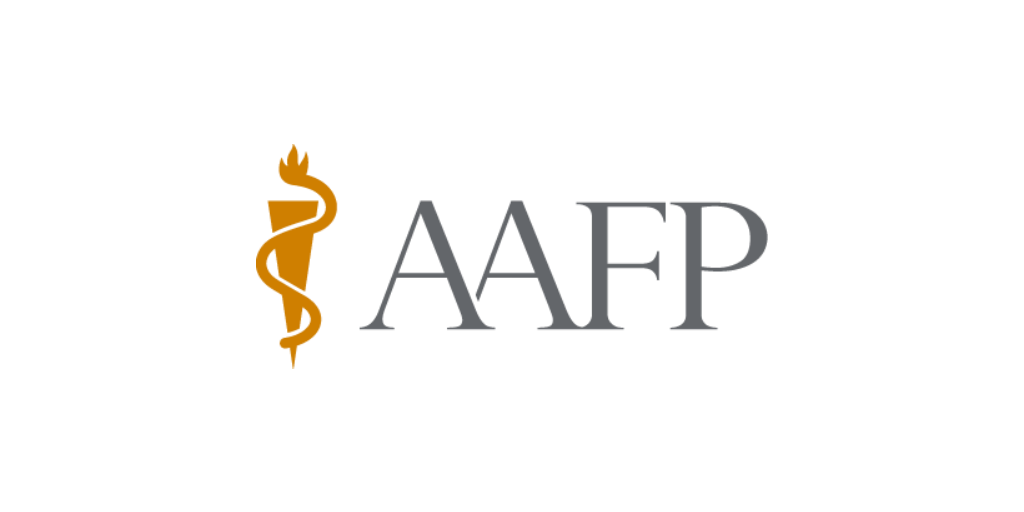
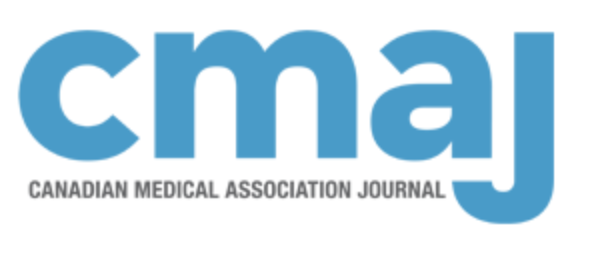
WEBSITE
The past, present and future of race and colonialism in medicine
"Western medicine has begun a reckoning with its inconvenient pasts, from dethroning medical heroes to an increasing awareness of how doctors have treated colonized and enslaved populations."

WEBSITE
The Privilege Gap in Medicine
"No matter how well-meaning, it often does not occur to the more privileged that certain issues even exist. Worse, patients can feel embarrassed to speak about money issues in front of a doctor who has clearly never experienced them."
WEBSITE
The Sociology of Gaslighting
WEBSITE
The ‘Majority Subsidy’
"What happens when a few faculty members are tasked with taking on most of the work of building diversity and inclusion?"
WEBSITE
The “Handling” of power in the physician-patient encounter: perceptions from experienced physicians
"Although the “sharing of power” is an overarching goal of modern patient-centered healthcare, this study highlights how this concept does not fully capture the complex ways experienced physicians perceive, invoke, and redress power in the clinical encounter. Based on the insights, the authors suggest that physicians learn to enact ethical patient-centered therapeutic communication through reflective, effective, and professional use of power in clinical encounters."
WEBSITE
Tolerance in medicine

POP-UP
Understanding Privilege: A Video
Simran Rughani explains privilege and why it's an important concept to consider when leading tutorials.
POP-UP
Video: 5 Core Principles of Peer Support
Dr Nick Barnes talks through the 5 core principles and how these can be used by various settings to ensure peer support programmes are effective, evidence-based and meaningful.
POP-UP
Video: Aligning policy with practice: International, Intercultural and EDI
Over the last year, there has been a growing recognition of the need to be more collaborative in the work that we do on and off campus and in the virtual world especially as it relates to equity, diversity, and inclusion (EDI) work. In this session, speakers will share insights on integrating policy with practice, ways they are working to bridge gaps between EDI and international, and provide frameworks and suggestions for creating a more inclusive environment for all.
POP-UP
Video: Differential Attainment
The British Medical Association is a professional association and trade union for doctors and medical students in the UK.
POP-UP
Video: Diversity, Equity & Inclusion: DEI Training’s Unintended Consequences
All big companies now require "DEI" training for employees, but studies say that often BACKFIRES. One study looked at 800 companies, and found that after companies did trainings, they actually came to have FEWER black managers. How is that possible? Erec Smith, a former DEI trainer, now a Professor of Rhetoric at York College, tells me: "It seems to be making people less likely to interact with people who are unlike them ... because it's like a minefield now." He explains that the trainings can make people so afraid of saying something wrong, that people just avoid each other. “If you ask somebody what they do for a living, somehow that's racist, right? If you learn that, then why would you take a chance?" That's the just the tip of the iceberg, regarding DEI's problems. You can watch the video above for more strange ideas that come from it, like “try to be less white" and the idea that some kids don't need to learn standard English.
POP-UP
Video: Economic Development & Institutions: introduction to EDI
Institutions matter for growth and inclusive development. But despite increasing awareness of the importance of institutions on economic outcomes, there is little evidence on how positive institutional change can be achieved. The Economic Development and Institutions – EDI – research programme aims to fill this knowledge gap by working with some of the finest economic thinkers and social scientists across the globe. The programme was launched in 2015 and will run for five years. It is made up of four parallel research activities: path-finding papers, institutional diagnostic, coordinated randomised control trials, and case studies. The programme is funded by the UK Department for International Development.
POP-UP
Video: Engaging Healthcare Teams to Eliminate Health Inequities
Learn about strategies that healthcare systems can use to identify and eliminate health inequities affecting their patients. For further information about how these strategies are being used to improved care for Veterans, visit: VA.gov/healthequity/
POP-UP
Video: Health Inequalities in Canada
This video highlights key health inequalities in Canada.
POP-UP
Video: Inclusive Language
Drawing on her knowledge and experience in the LGBT sphere, she encourages listeners to advocate through the simple but practical use of inclusive language. This talk was given at a TEDx event using the TED conference format but independently organized by a local community.
POP-UP
Video: Mentors in medicine
Boosted by a gift from Dr. Robert Melnikoff, the Osler Fellows Program is matching first-year McGill medical students with senior members of the University's medical community to expose them to the daily rigours of practicing healthcare and the importance of physician-patient relationships.
POP-UP
Video: Peer support in mental health
In which ways does peer support work for young people who experience anxiety and depression? In what contexts does peer support work for young people who experience anxiety and depression? For whom does peer support appear to work for, and why?
POP-UP
Video: Side by Side The Power of Peer Support
A short film discussing the value of lived experience and peer work. The film features peer workers based in Edinburgh sharing their experience of this approach to mental health support and the potential future they see for this powerful approach to recovery.
POP-UP
Video: Social Inequalities in Health
Behavioral and Social Sciences Research Lecture Series: Social inequalities in health
POP-UP
Video: Why inclusive language is so important!
Your words matter, and Kelly Kitagawa will explain why. In this episode, Kelly gives insight on inclusive and changing words, phrases and pronouns and how they affect us. This video is part of her series called "Personal Politics," in which Kelly shares her insights on ideas that can make some change.
POP-UP
Videos: How to be a Great Mentor | Kenneth Ortiz |
Everybody agrees that mentorship is critical to the success of corporate companies and organizations, yet few discuss what should be done to improve their mentorship process. Kenneth Ortiz shares his thoughts and wisdom on what is needed to develop successful mentor relationships to raise up the next level of leaders around us. Director of Lead Venture as well as the Bethany International Ministry Internship program. Kenny is a dynamic communicator, gifted Bible teacher, and published author. He has a strong track record of mentoring young adults and nearly 15 years of leadership experience in local church ministry, para-church ministry, and business. Kenny has been a youth pastor, conference speaker, school administrator, and successful entrepreneur. He is also the host of a popular podcast, “Theology for the Rest of Us.” Kenny’s undergraduate work was focused in the areas of Organizational Leadership, Psychology, and Biblical Studies. He is currently pursuing an M.Div. degree with an emphasis in Christian Education from Midwestern Baptist Theological Seminary as well as taking supplemental graduate courses at Harvard University. Kenny is an avid reader, history buff, sports fanatic, Disney enthusiast, and coffee addict.

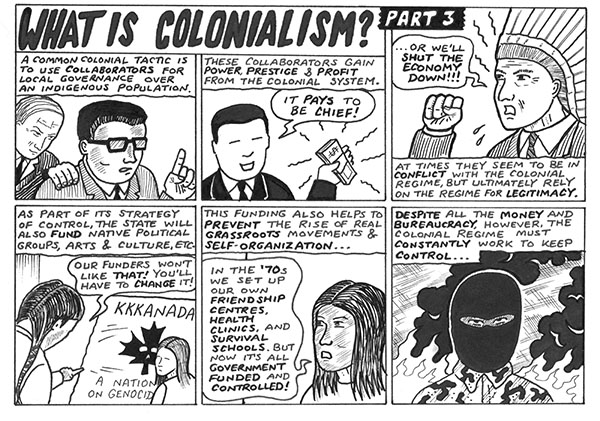
JPG
Visual Resources for “Colonialism”
Helpful graphics explaining "Colonialism" available at https://brokenpencil.com/article/what-is-colonialism/
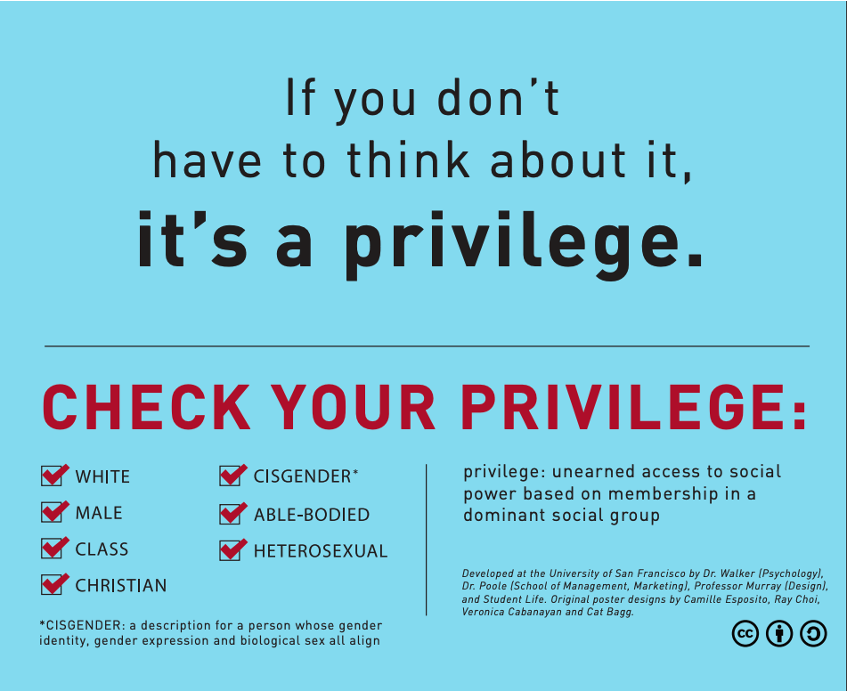
PNG
Visual Resources for “Privilege”
Helpful graphics explaining "Privilege" from www.raceandmedicine.com/understanding-privilege

POP-UP
Webinar: “Power and Privilege within the Medical Profession”
"Aims at exploring the still existing gender disparities among Healthcare professionals and by extension in medical schools."
WEBSITE
Website: Best Practices in Equity, Diversity and Inclusion in Research
Equity, diversity and inclusion requirements and their related considerations are assessed under two criteria of New Frontiers in Research Fund (NFRF) competitions: Equity, Diversity and Inclusion considers the research team and the research environment, including: team composition and recruitment processes; training and development opportunities; and inclusion. Feasibility considers the research plan, including: Indigenous research, and gender-based analysis plus (GBA+).
WEBSITE
Website: Differential Attainment
WEBSITE
Website: Inclusive Mentoring
WEBSITE
Website: Peer support
POP-UP
Websites Addressing “Microaggressions”
A collection of reputable websites that explore how Microaggressions are integrated in and affect society.
WEBSITE
What Inclusive Leaders Sound Like
Leaders across virtually every industry are pledging to be more inclusive; but if their actions and behaviors don’t support those values, the progress stops there. In their recent study, the authors applied a combination of computational linguistics, vocal mapping, and facial micro-expression analysis to determine what truly makes a leader inclusive in the eyes of an audience. Here they provide three behaviors that can be learned, practiced, and mastered.
POP-UP
What is Accessible Healthcare?
"Healthcare should be equitable and accessible for everyone, but what exactly is equitable access to healthcare? Access is the ability to seek healthcare. The ability to physically connect and to pay for healthcare. Most importantly, access is the ability to engage with healthcare."

WEBSITE
White Privilege in a White Coat: How Racism Shaped my Medical Education
"Medical professionals are increasingly aware of how social determinants of health lead to important health disparities, however white physicians seldom ask how their own racial privilege reinforces a white supremacist culture and what effects this may have on our patients’ health."
WEBSITE
Why Inclusive Language Matters
In December 2021, APA released the first edition of its Inclusive Language Guidelines to raise awareness, guide learning, and support the use of culturally sensitive terms and phrases that center the voices and perspectives of those who are often marginalized or stereotyped. It includes guidance for people working to foster equity, diversity, and inclusion in the settings in which they learn, live, and work. The guidelines are grounded in psychological science and designed to be iterative given the dynamic and ever-evolving nature of language. They provide direction not only for research articles and formal writing but also for verbal communication, due to the significance of building relationships in day-to-day exchanges.
WEBSITE
Why the caged bird sings
POP-UP
Xenophobia (graphic 1)
POP-UP
Xenophobia (graphic 2)
POP-UP





